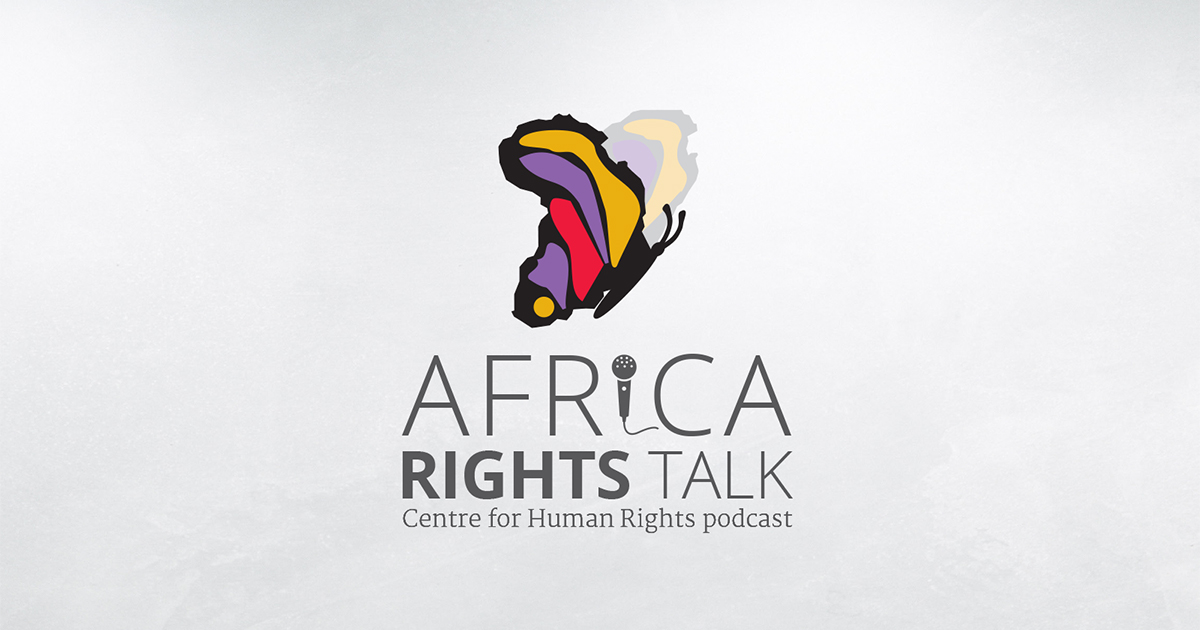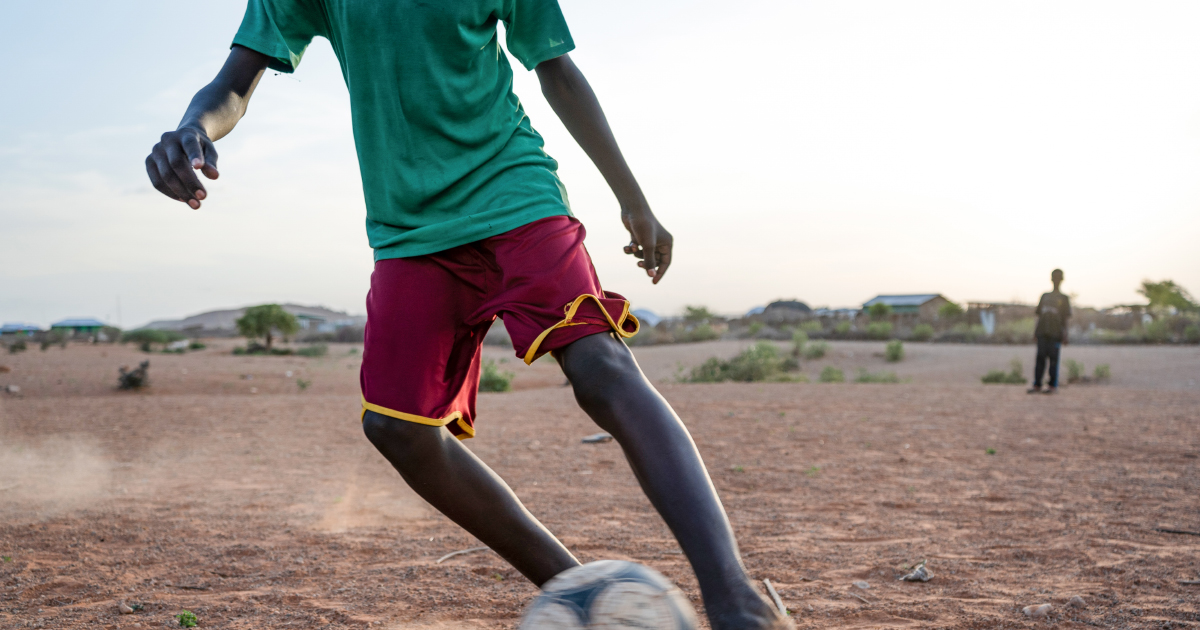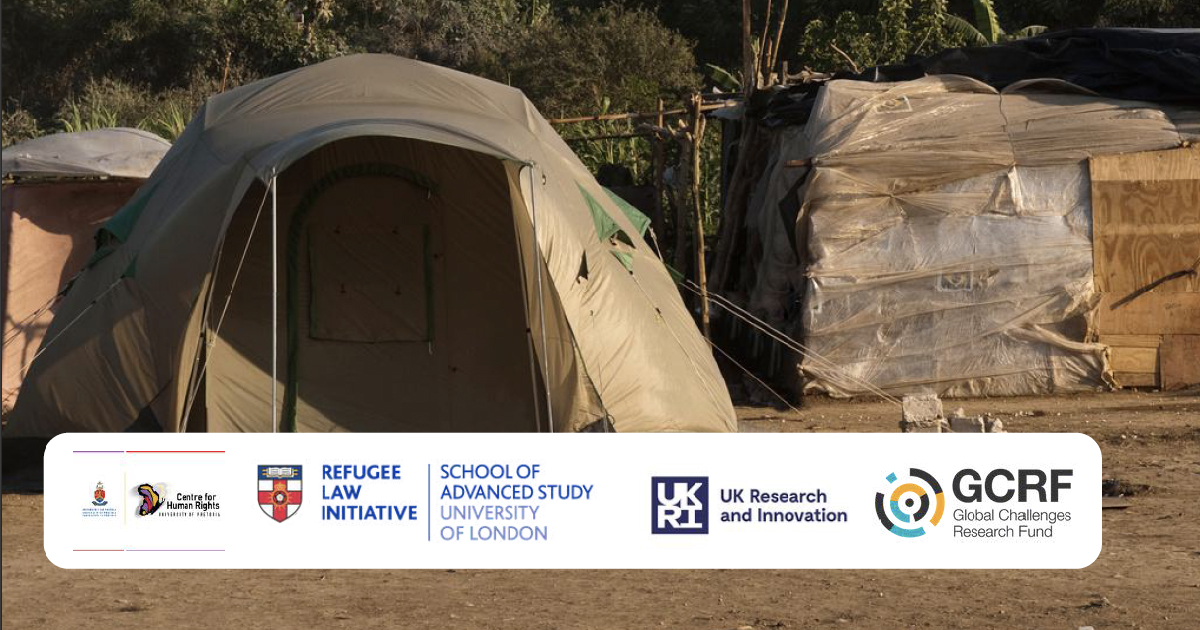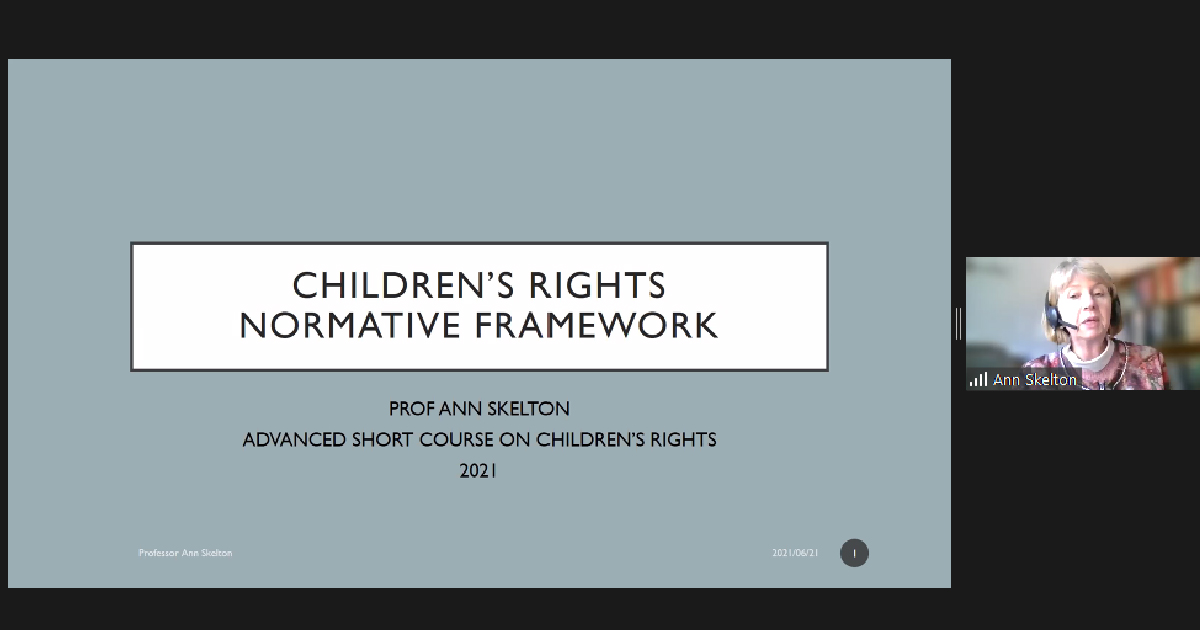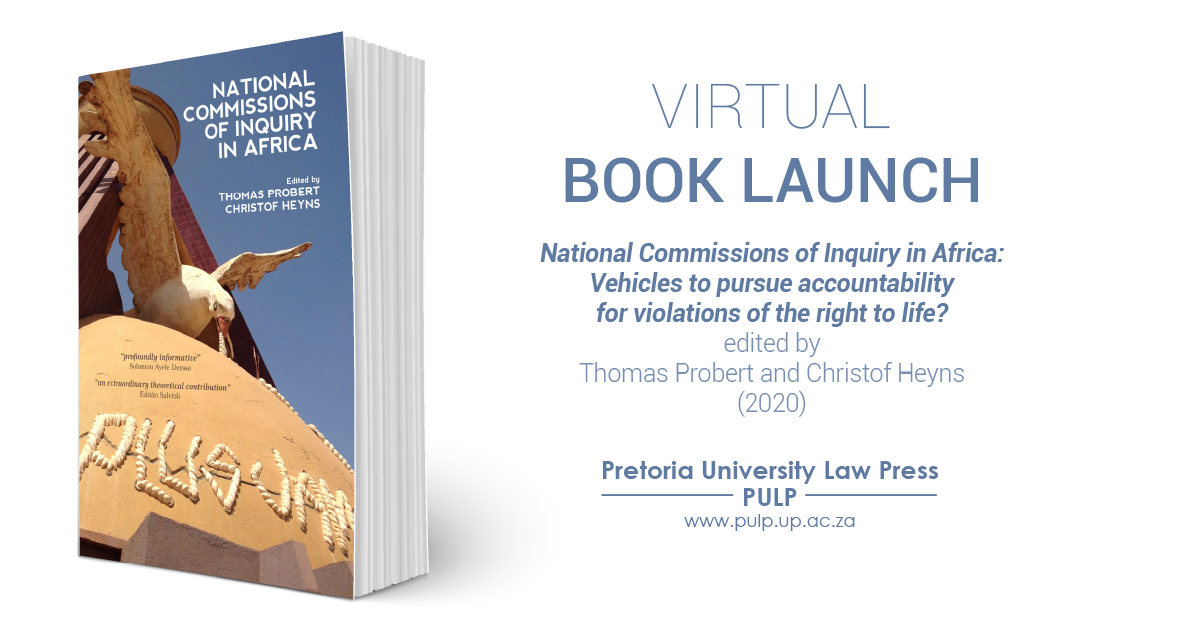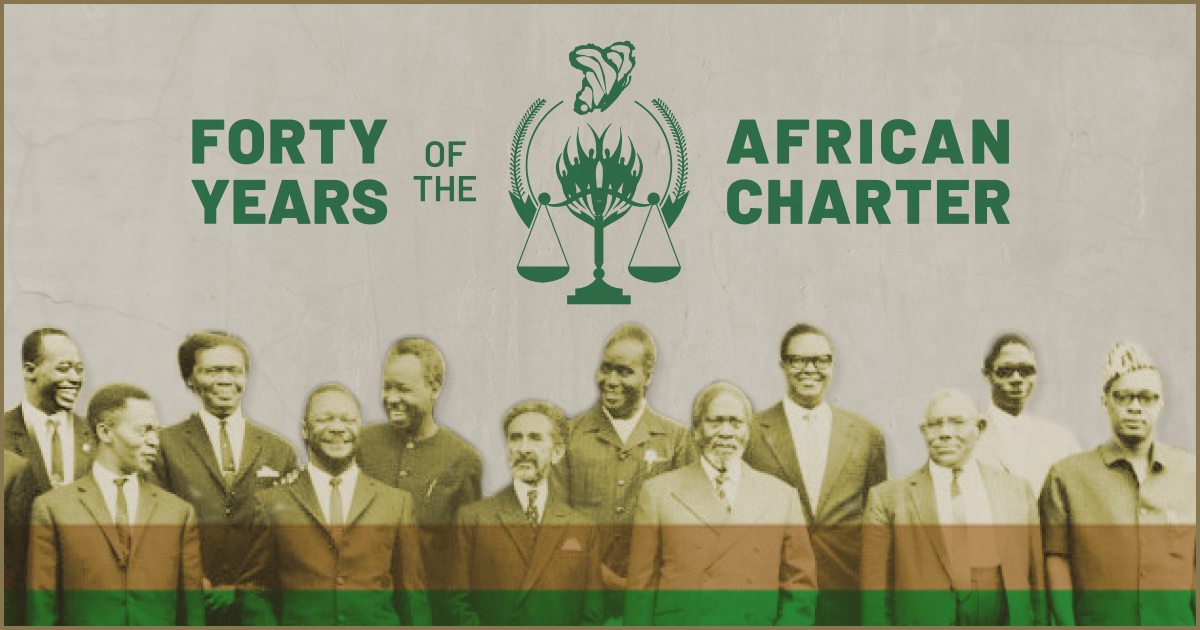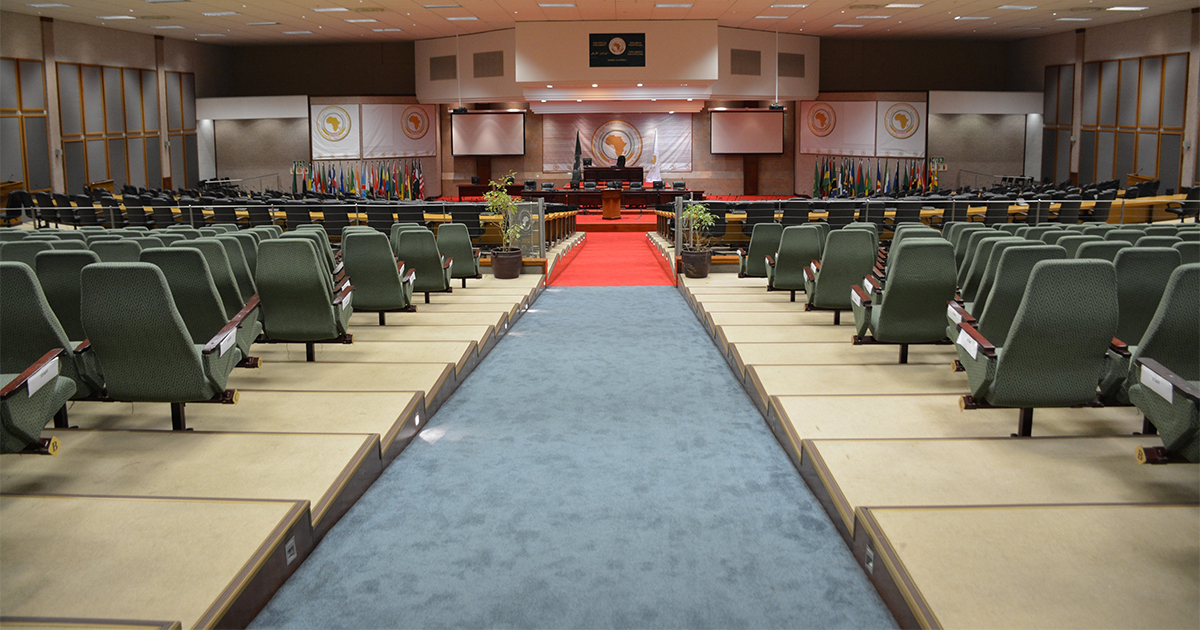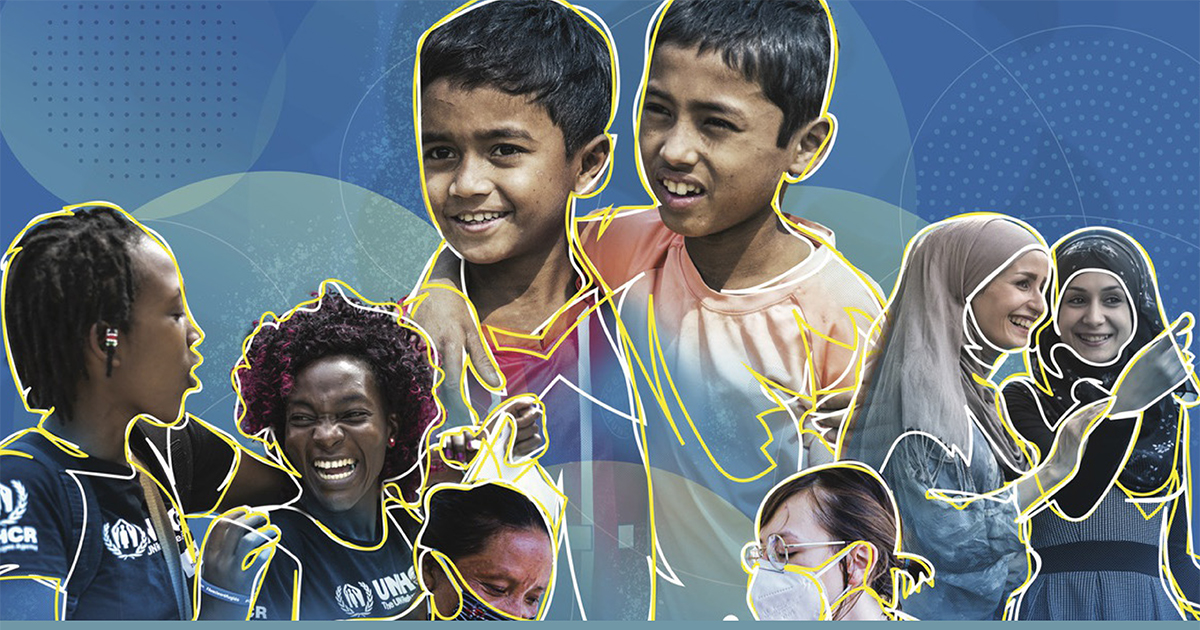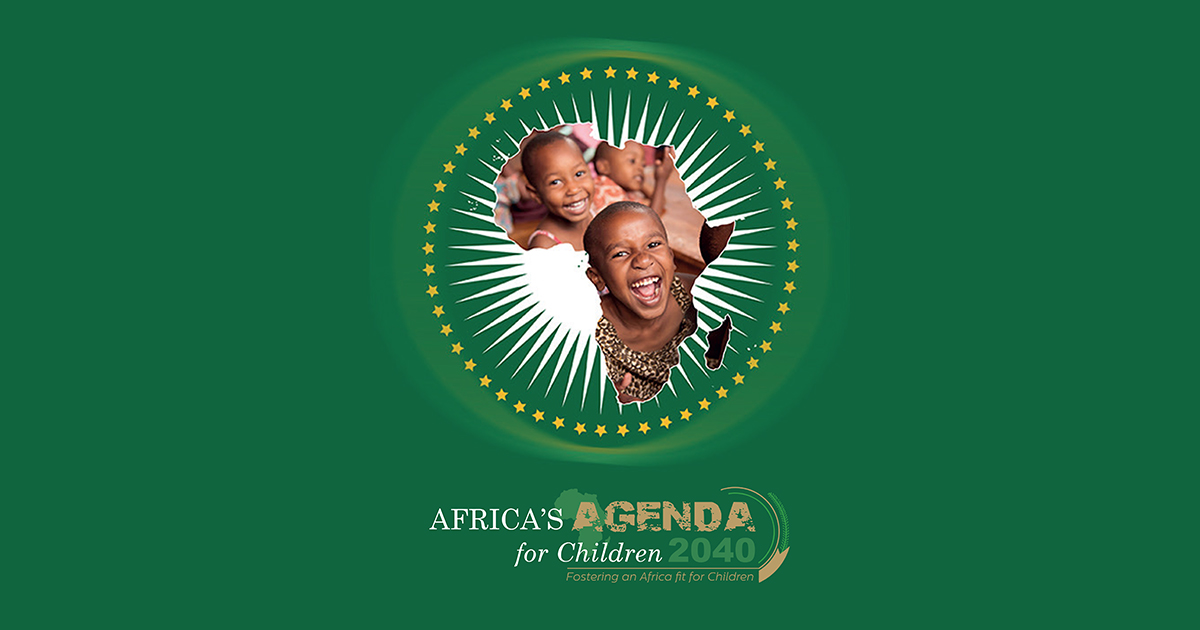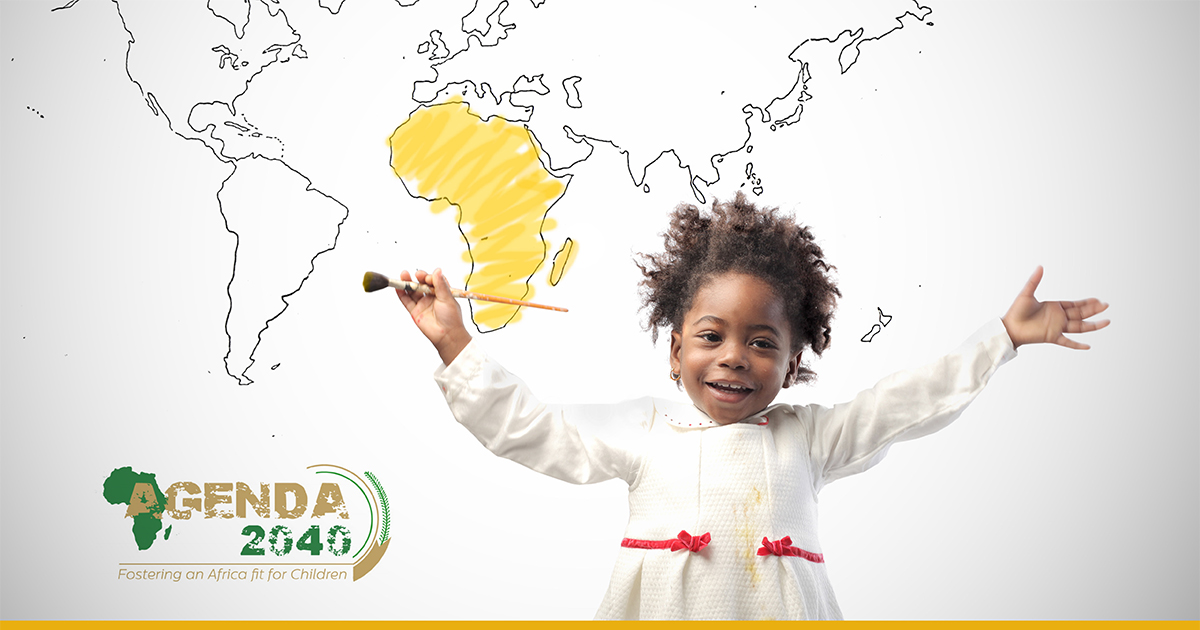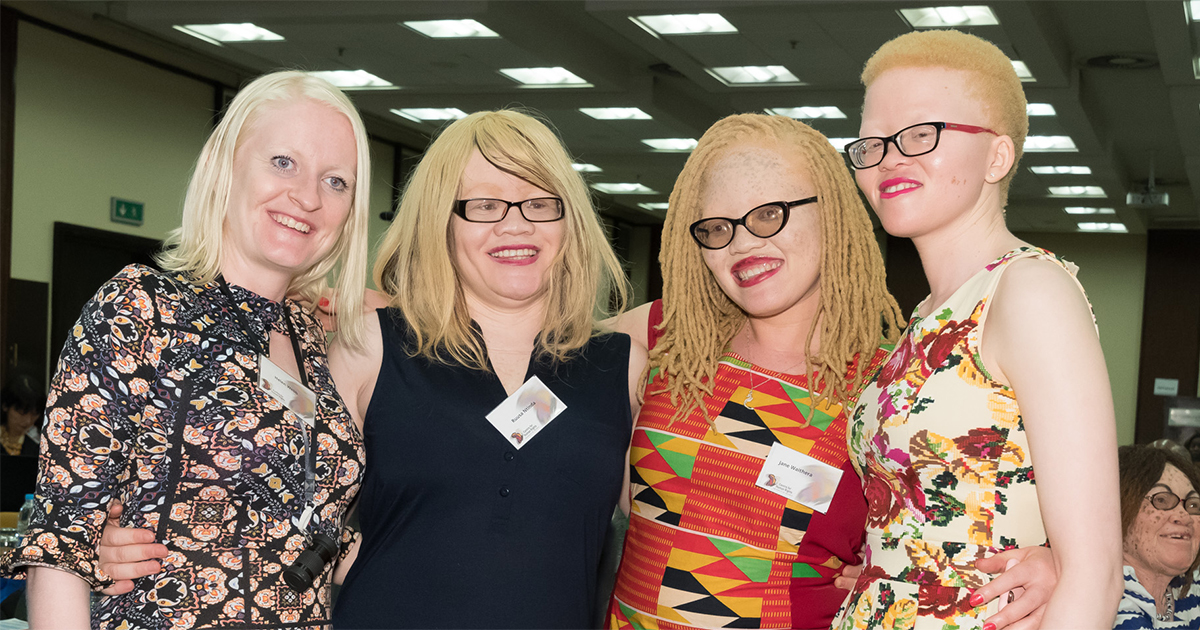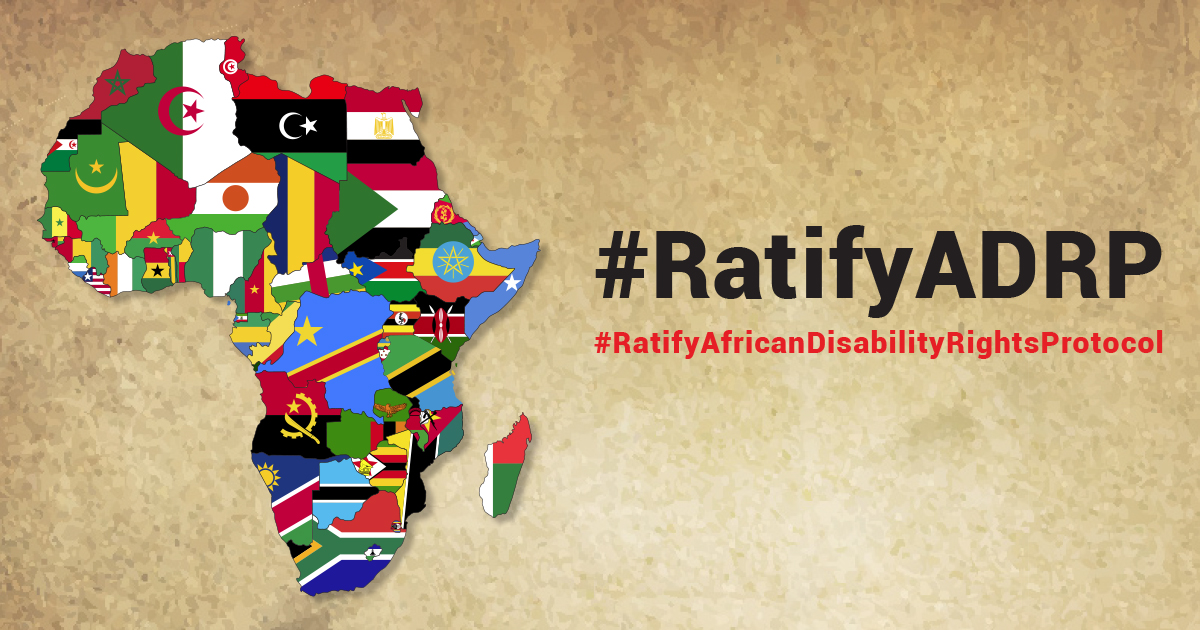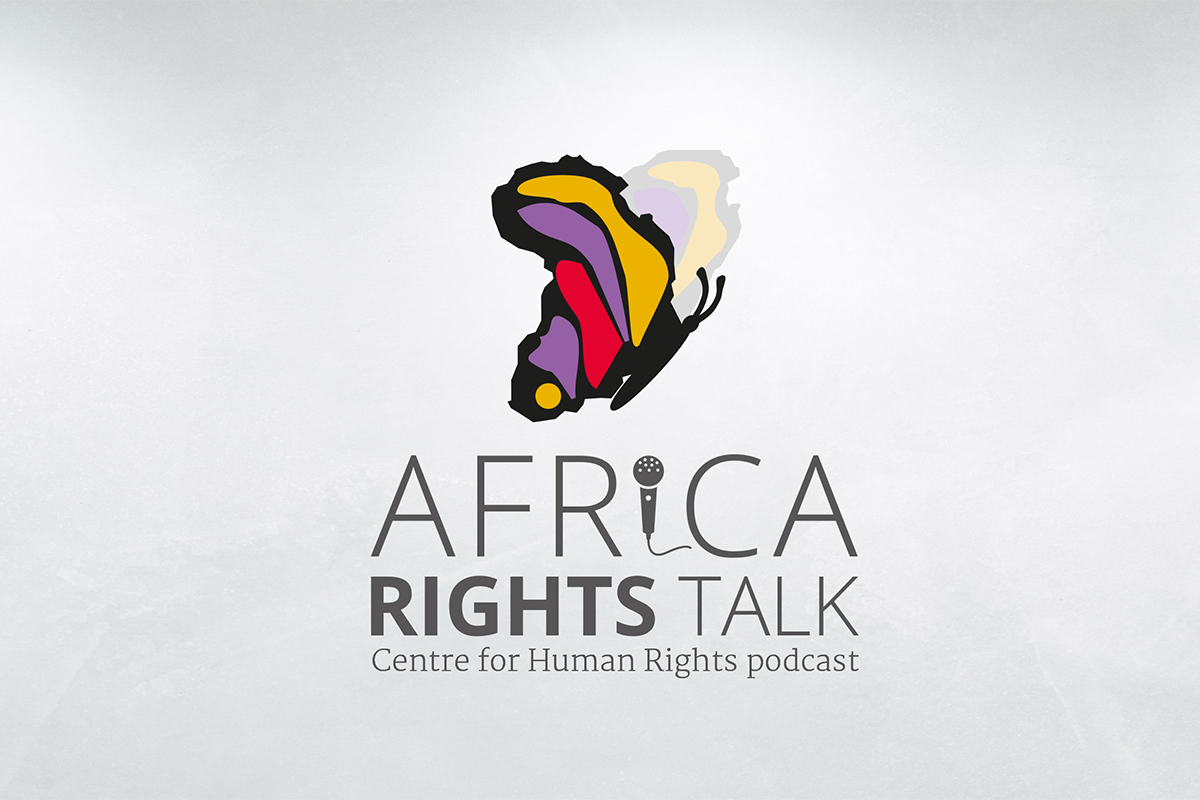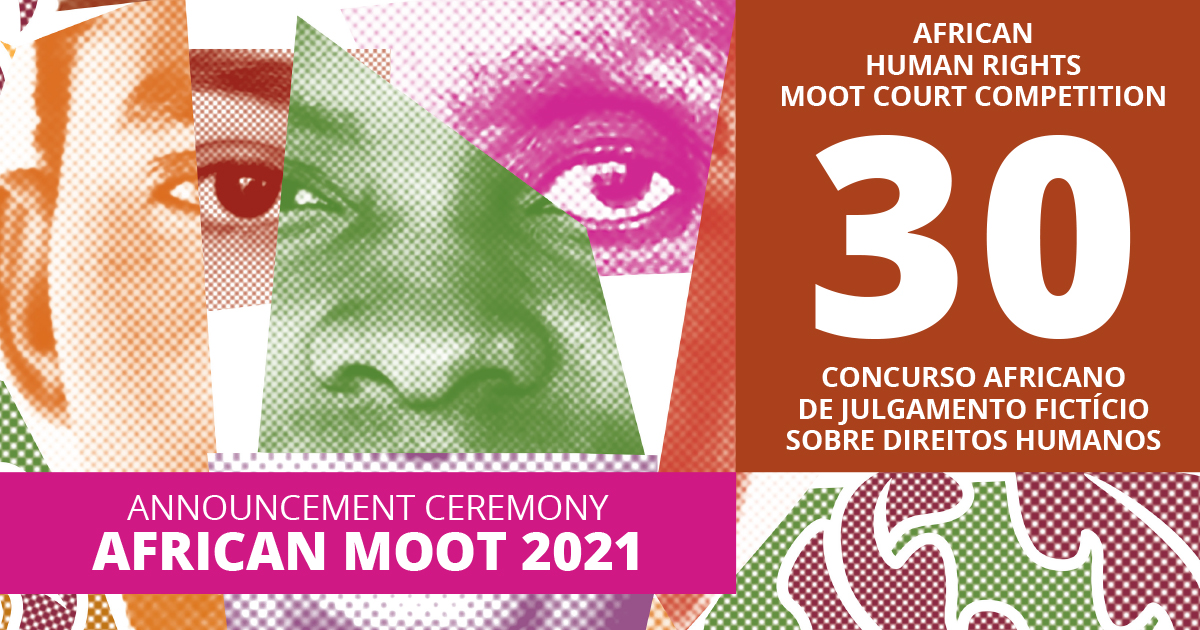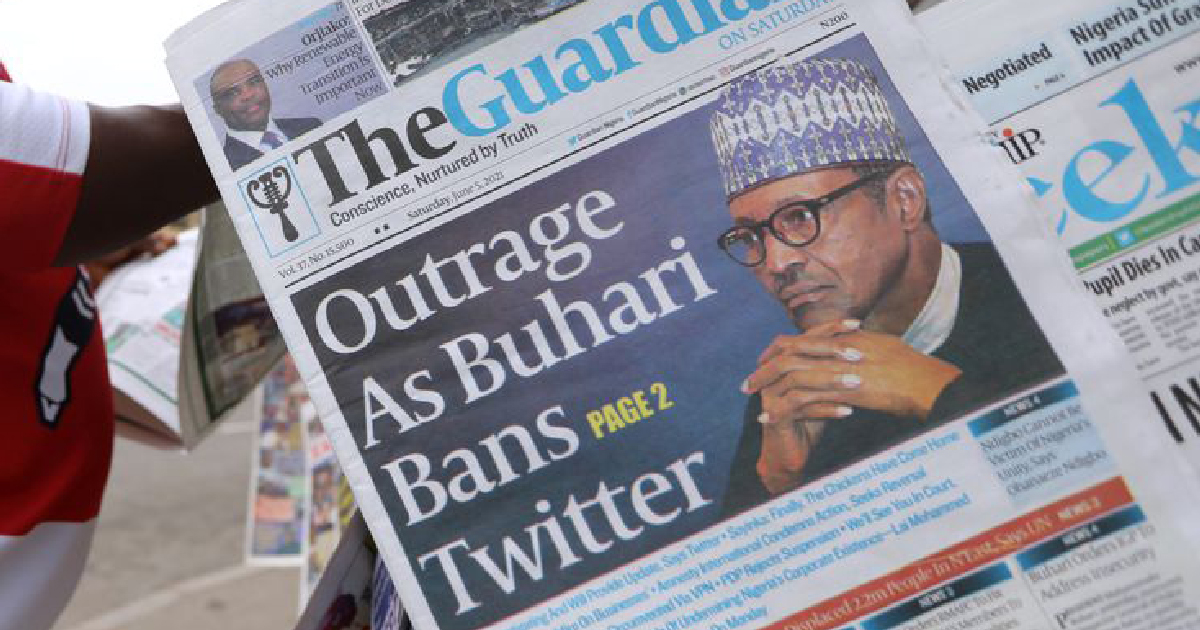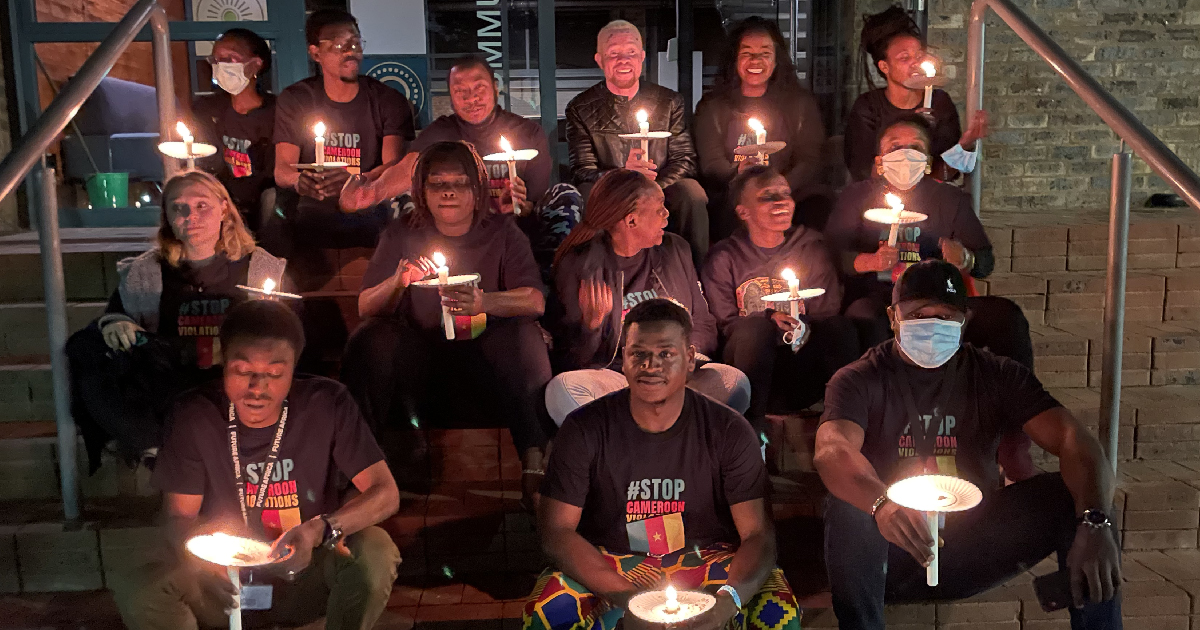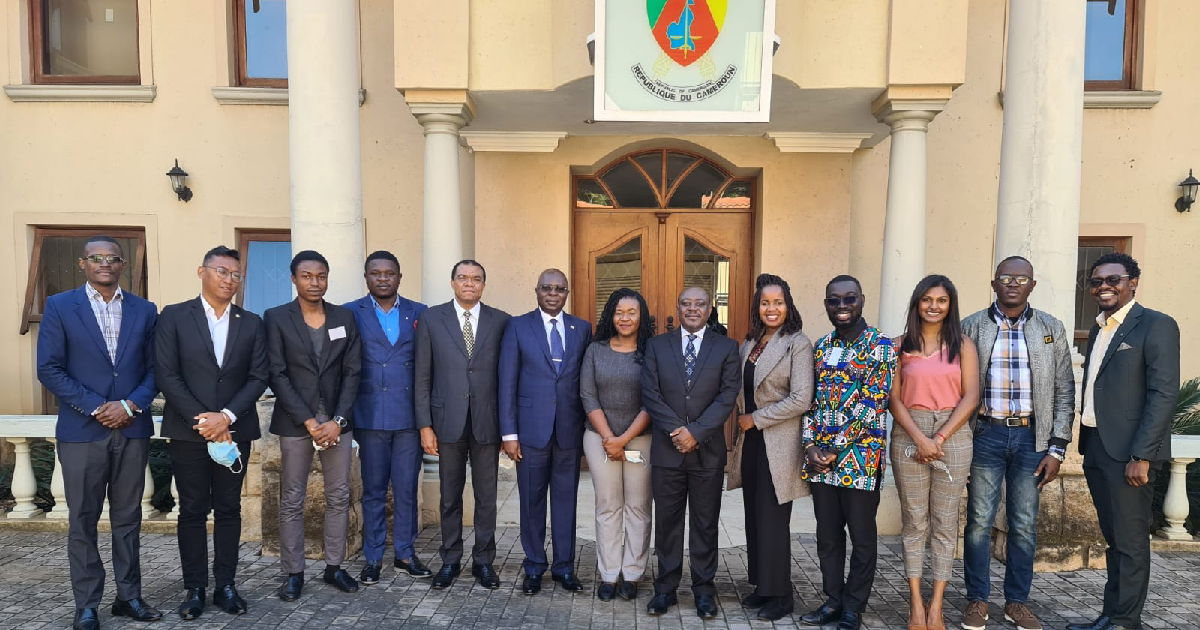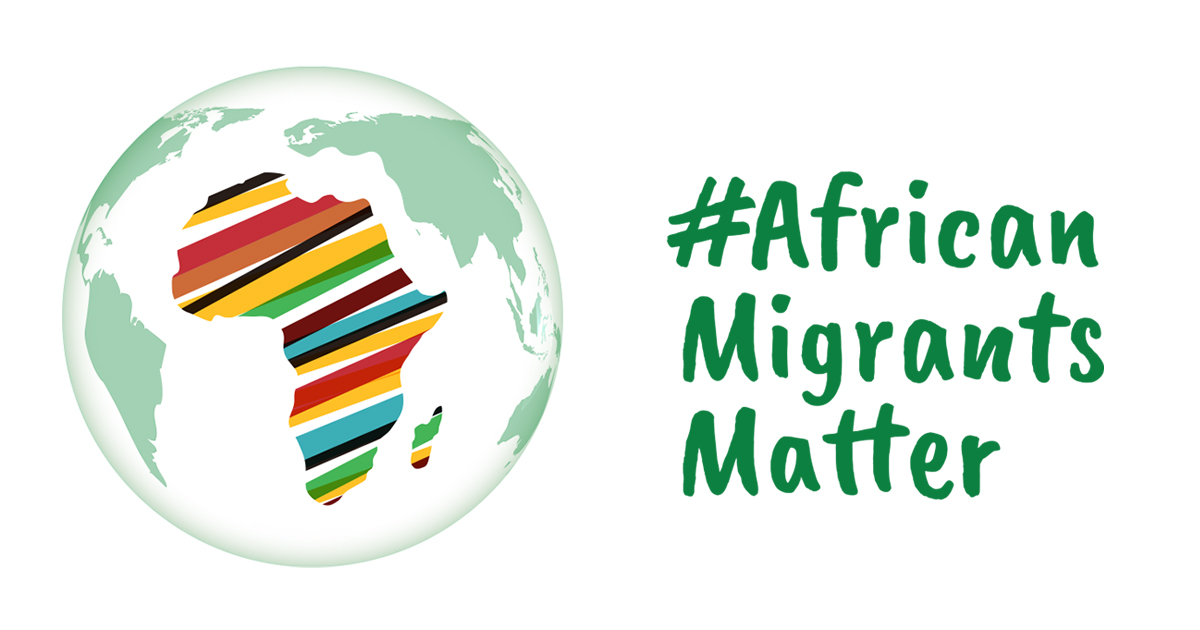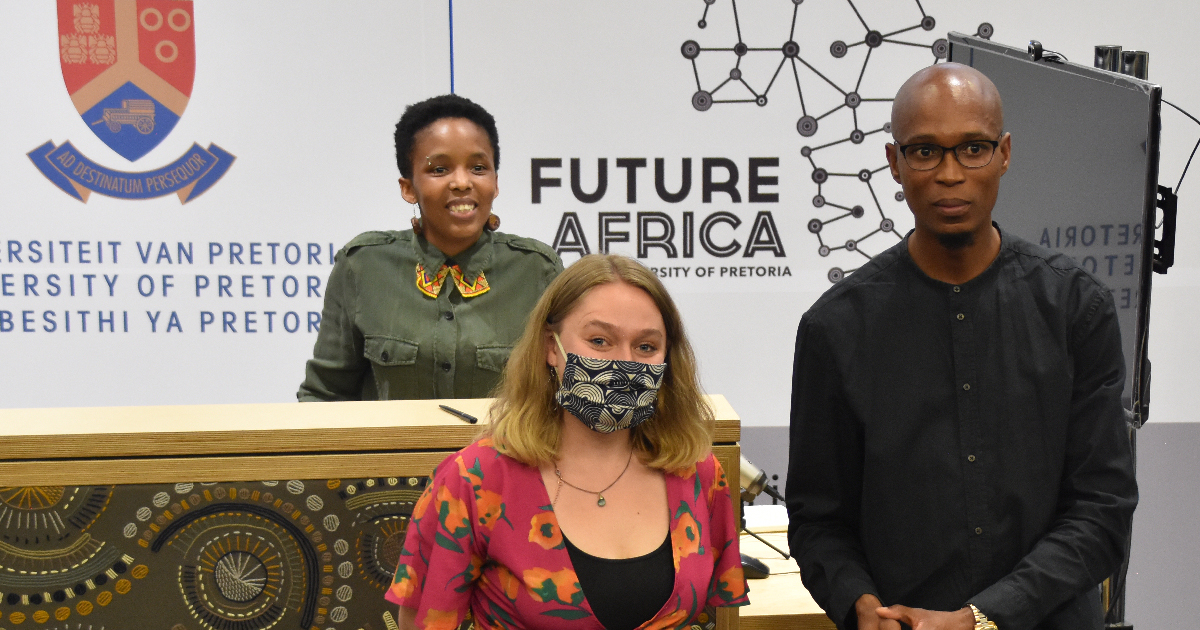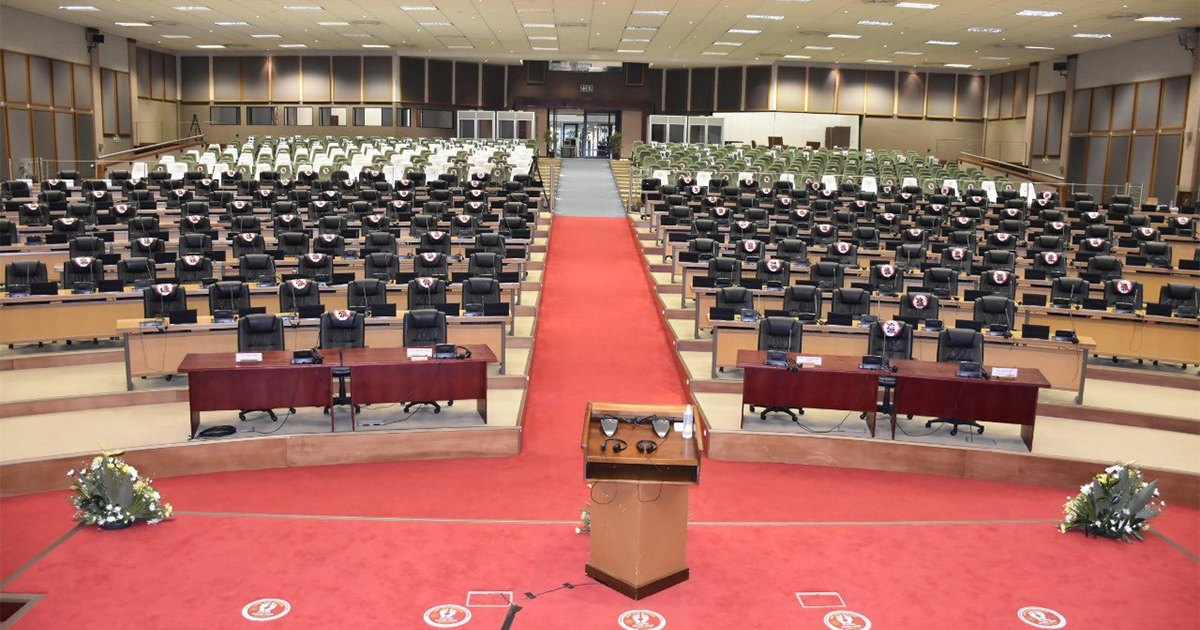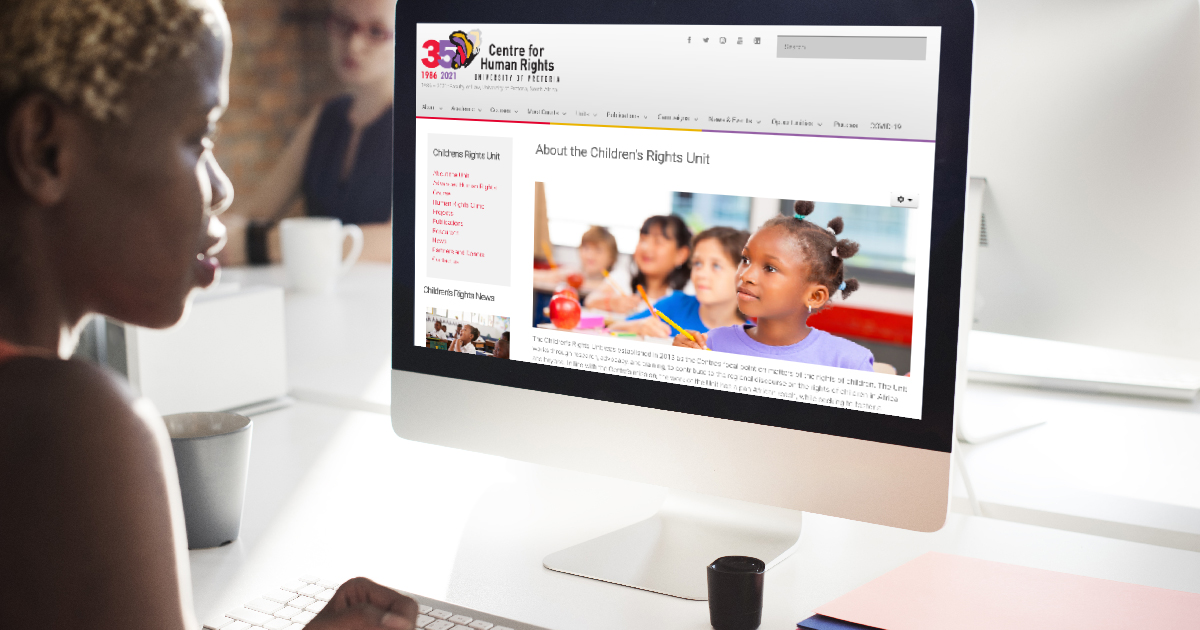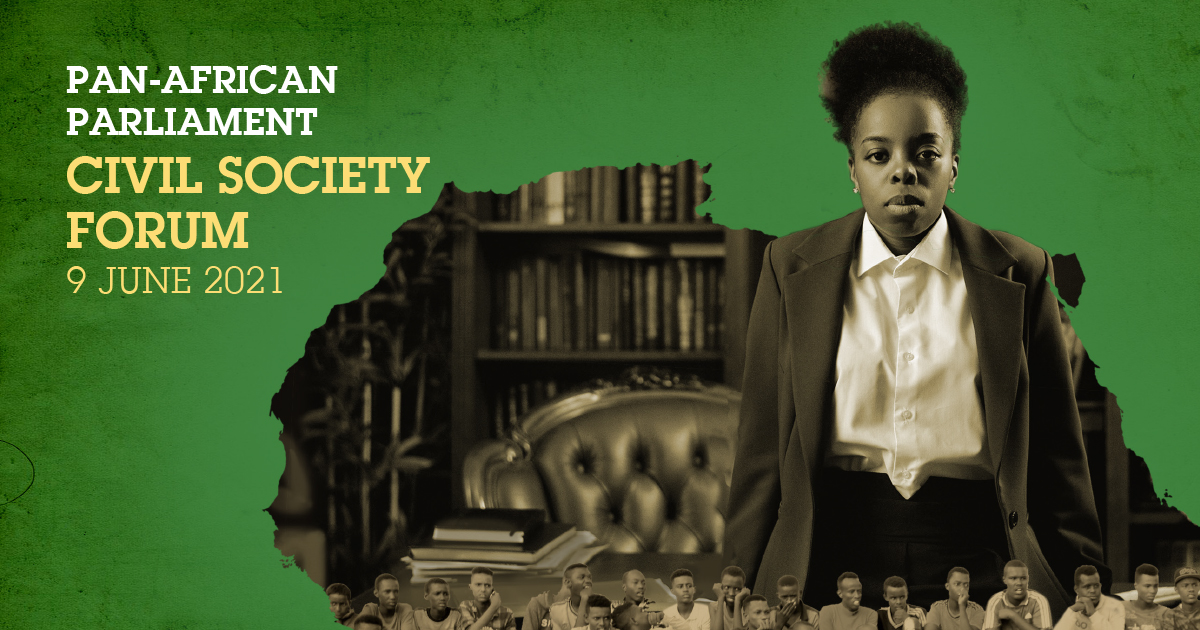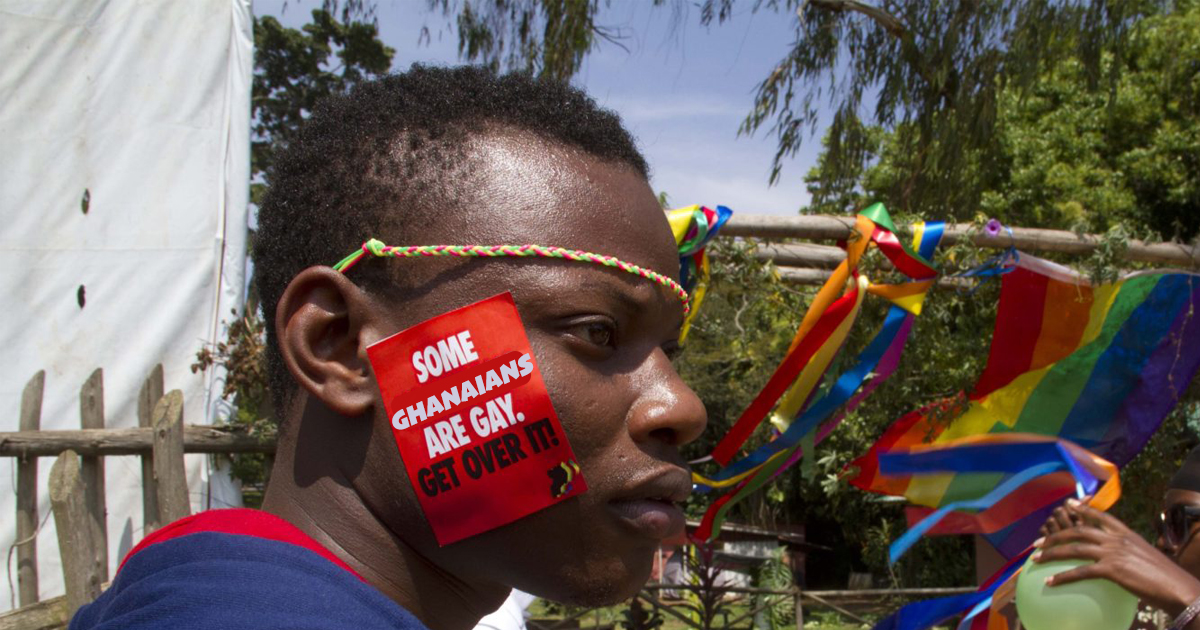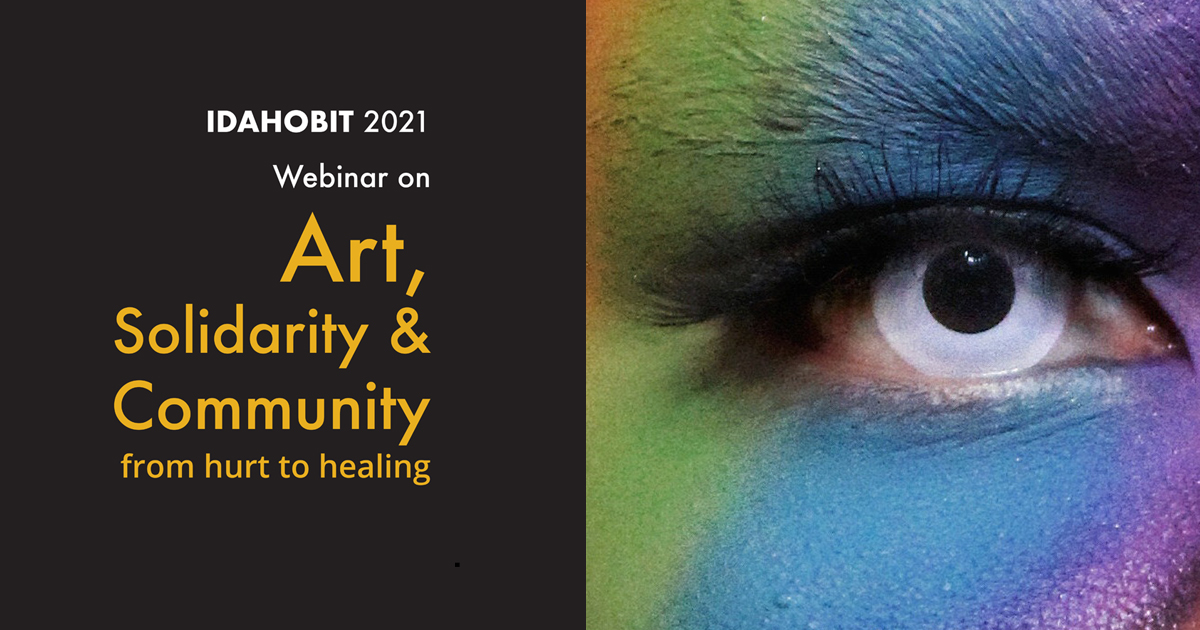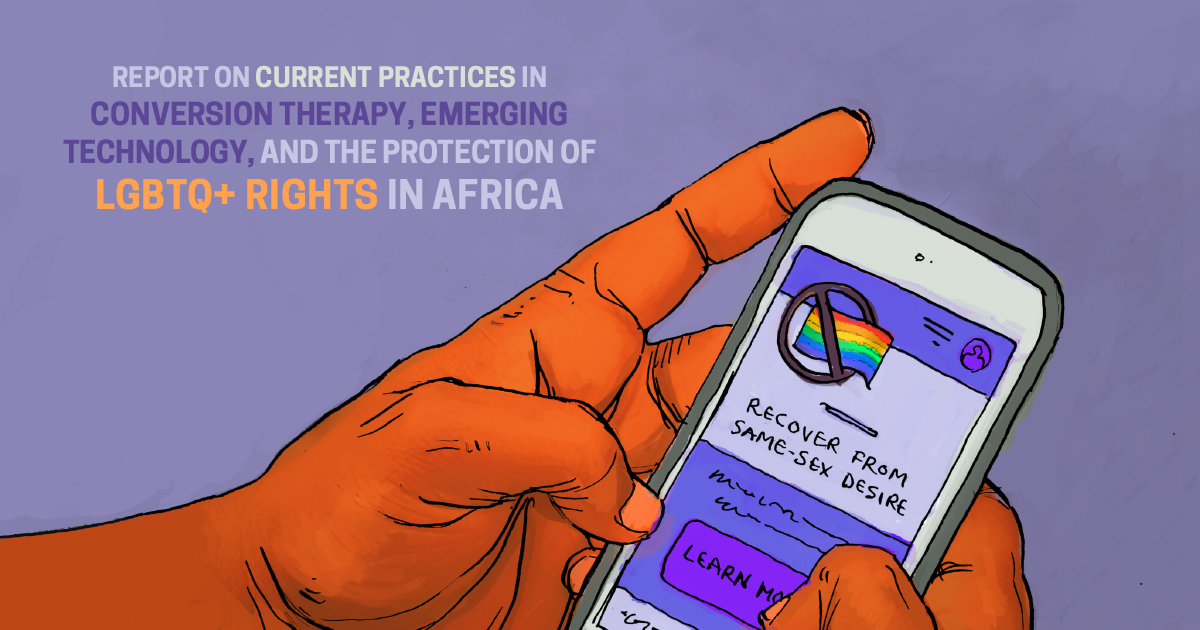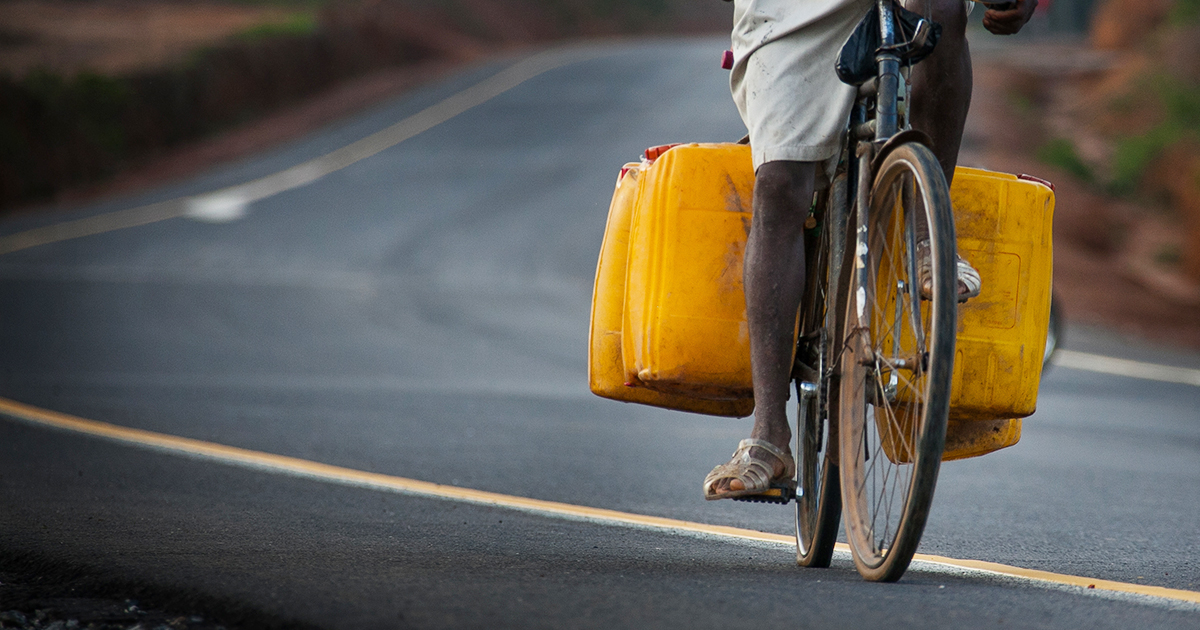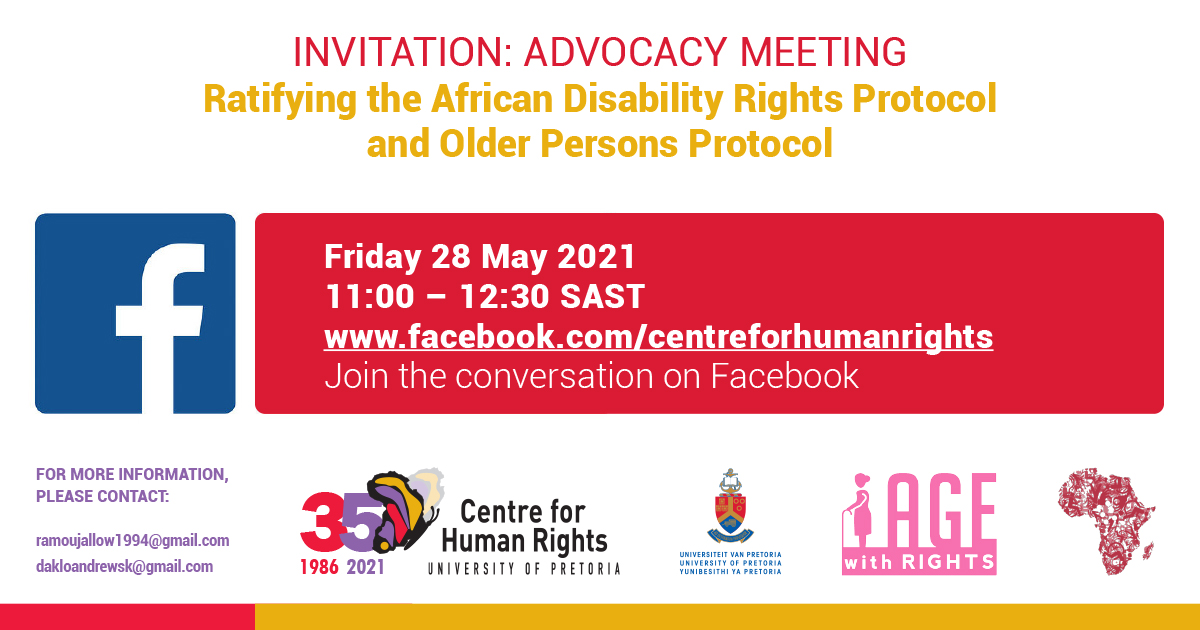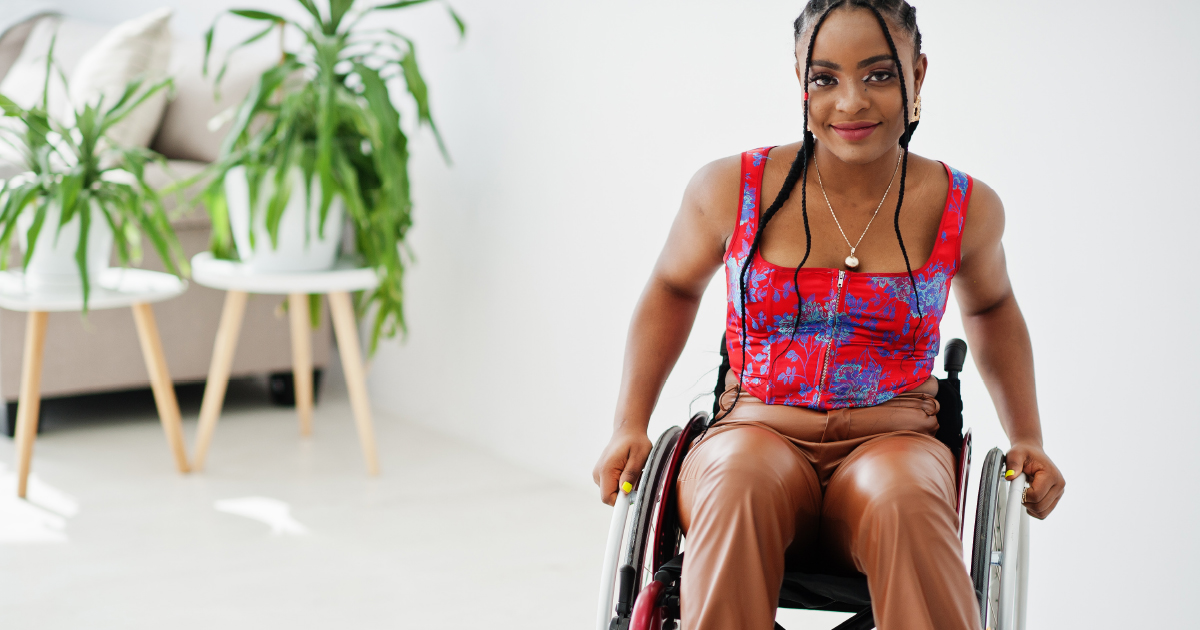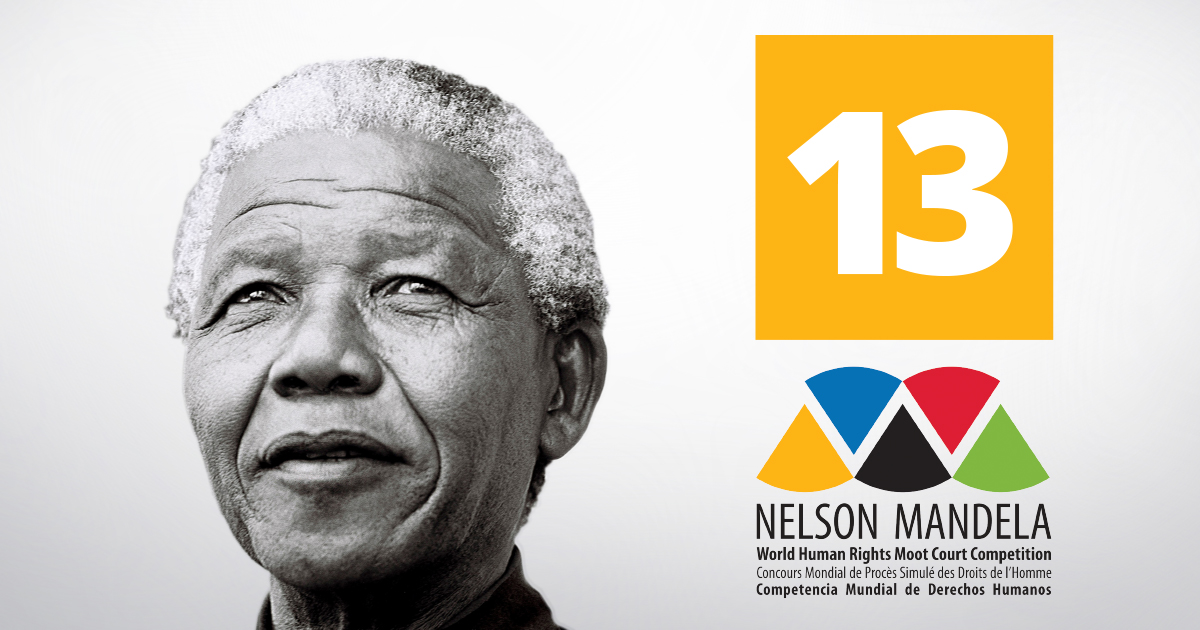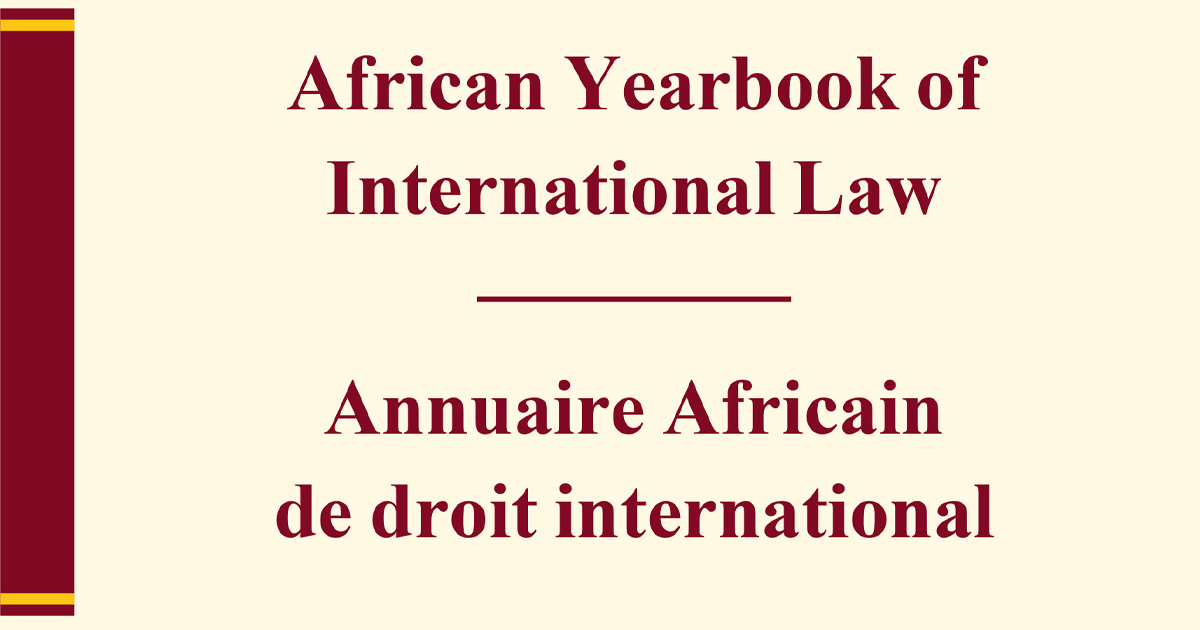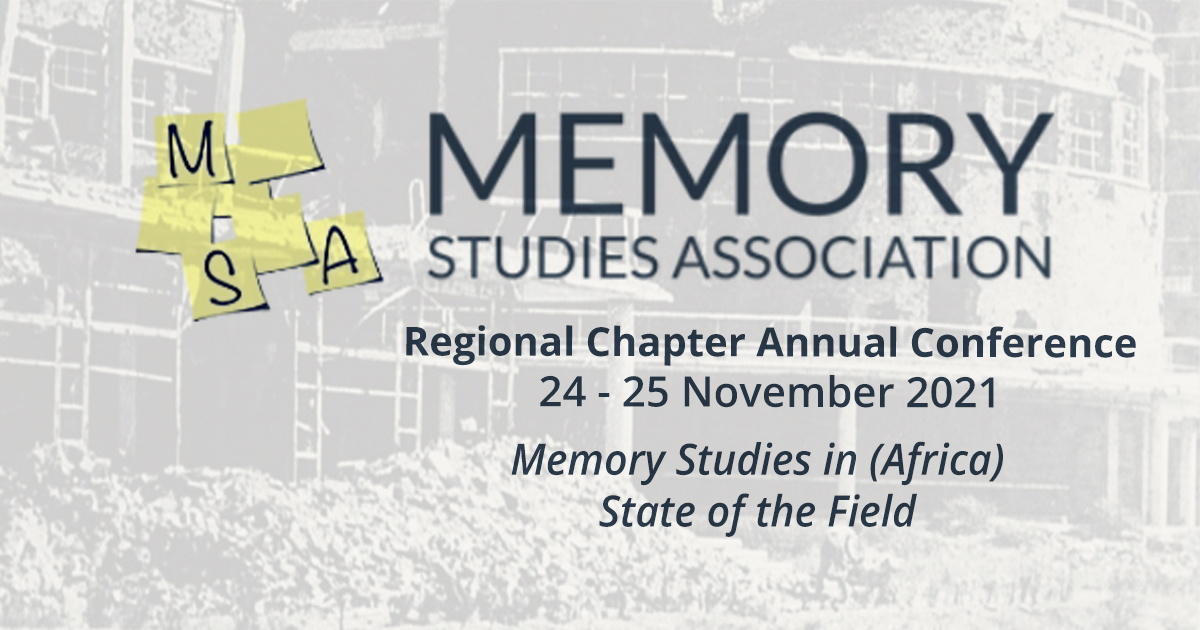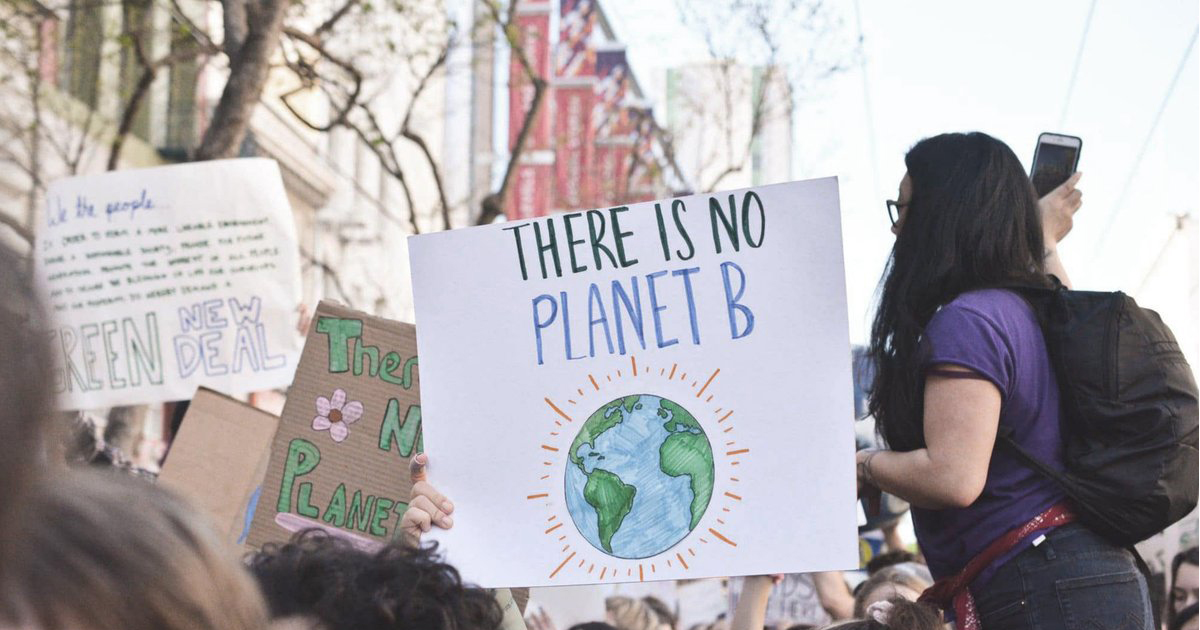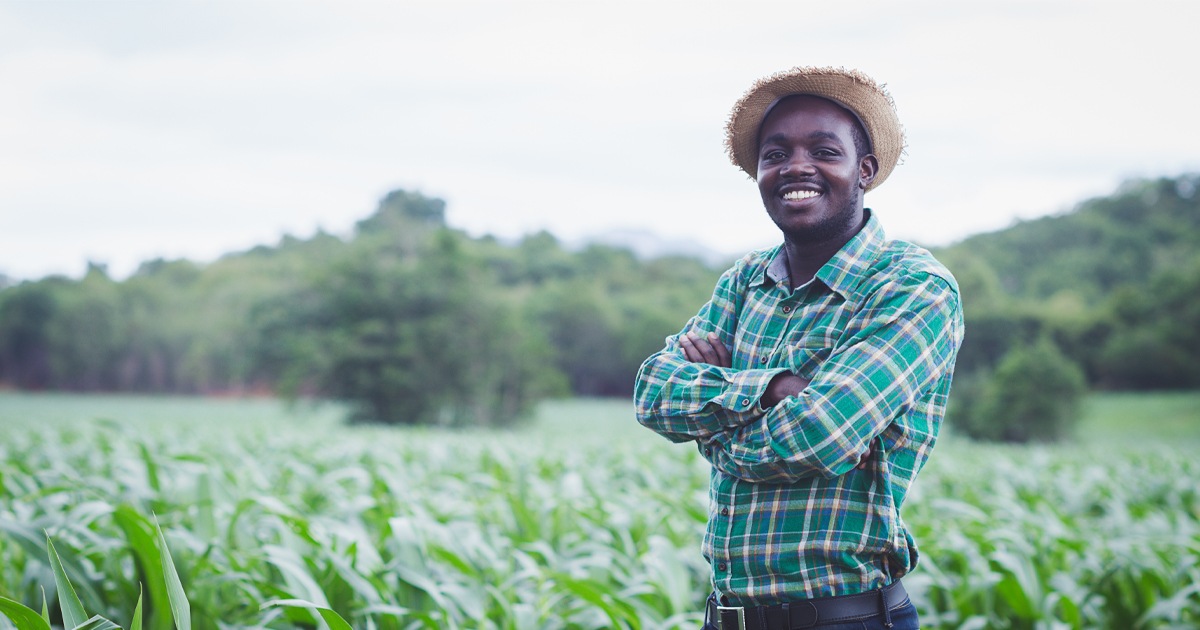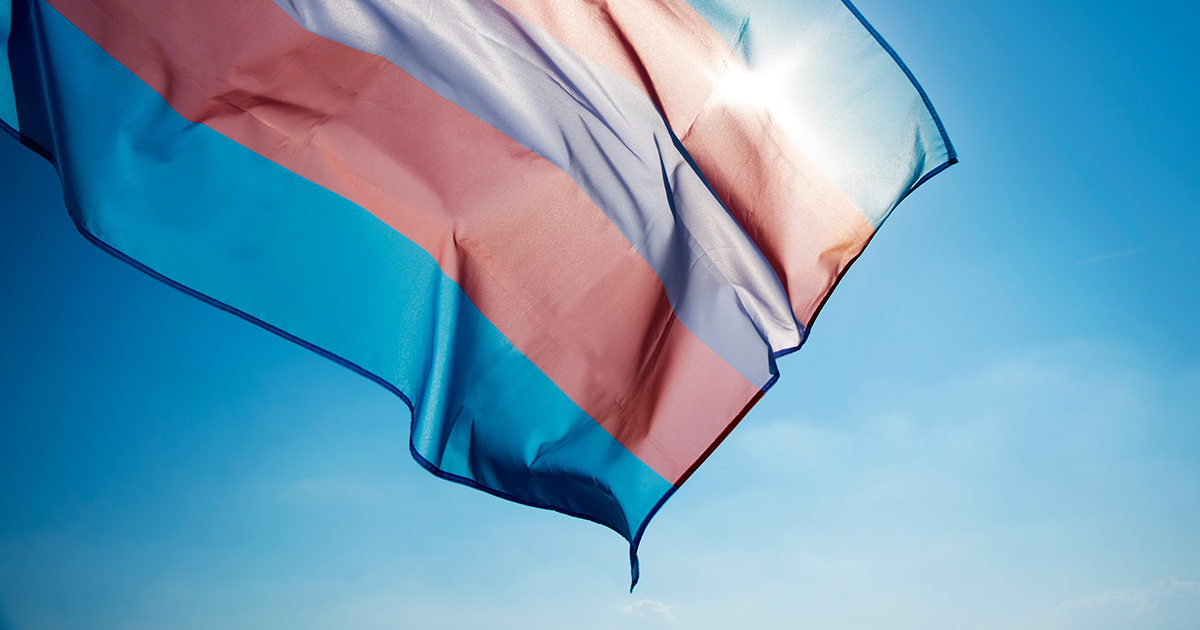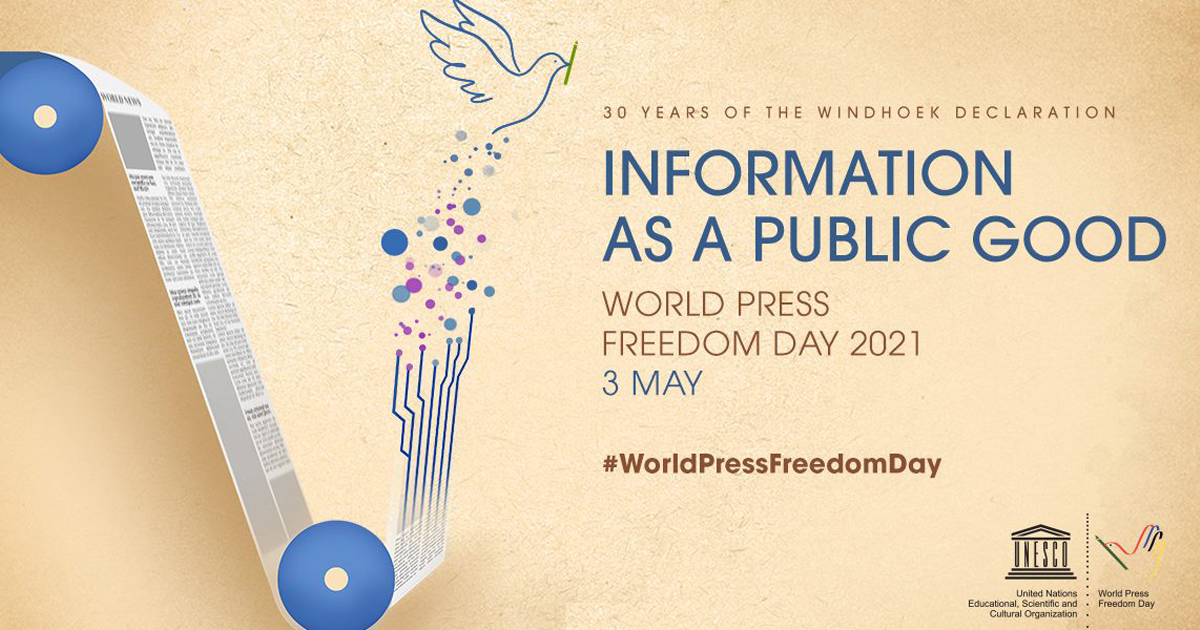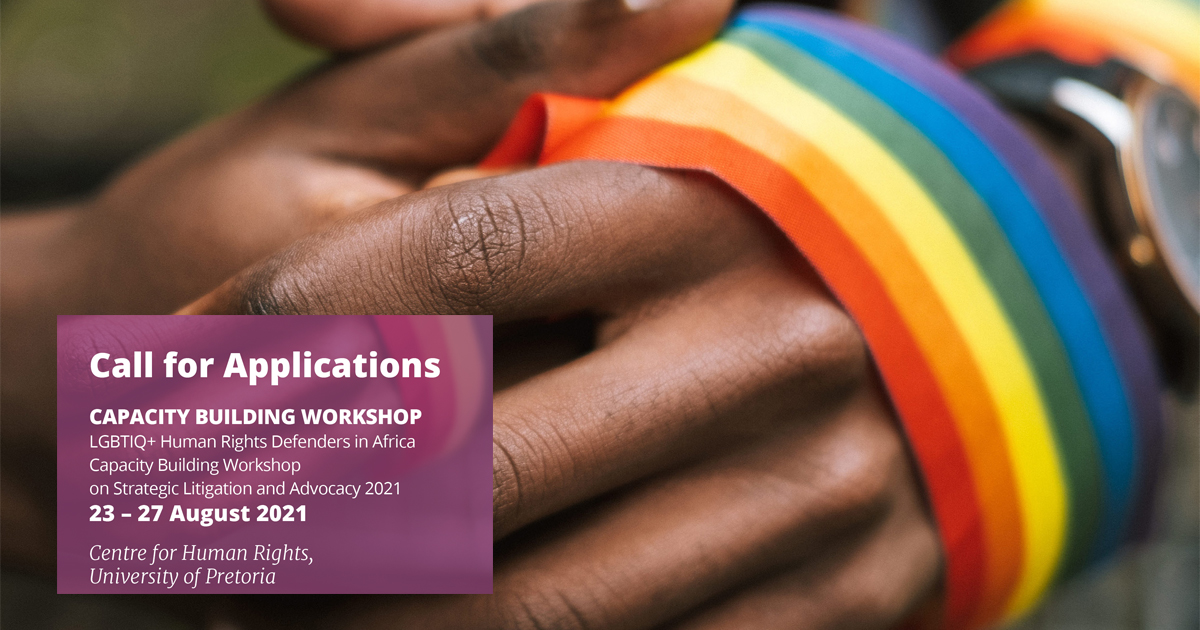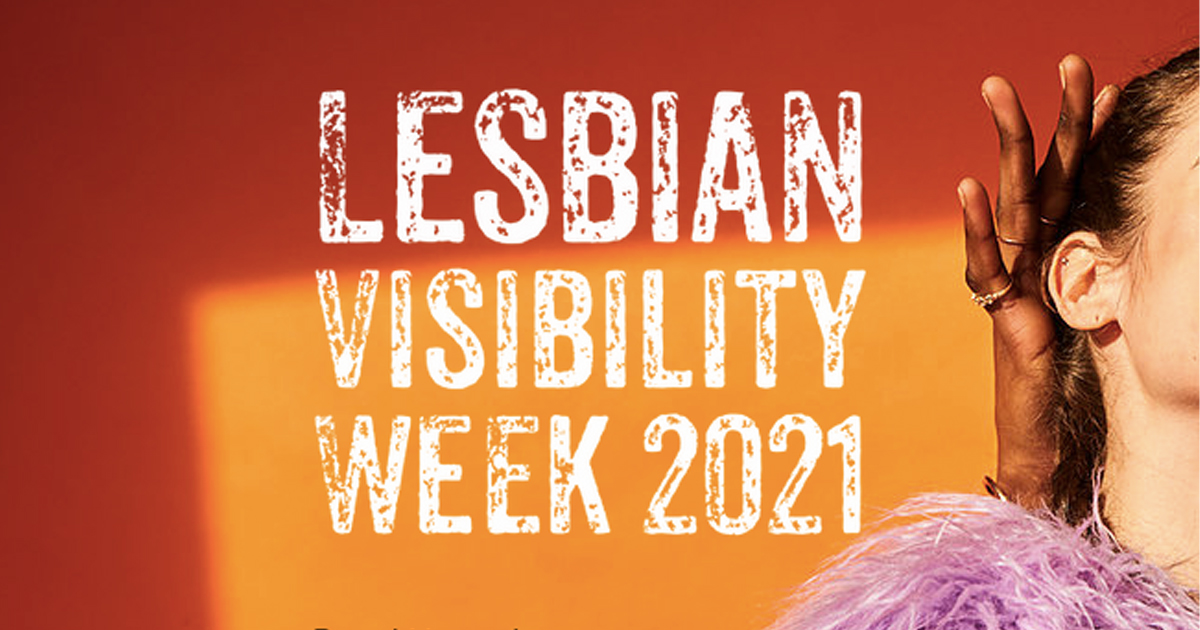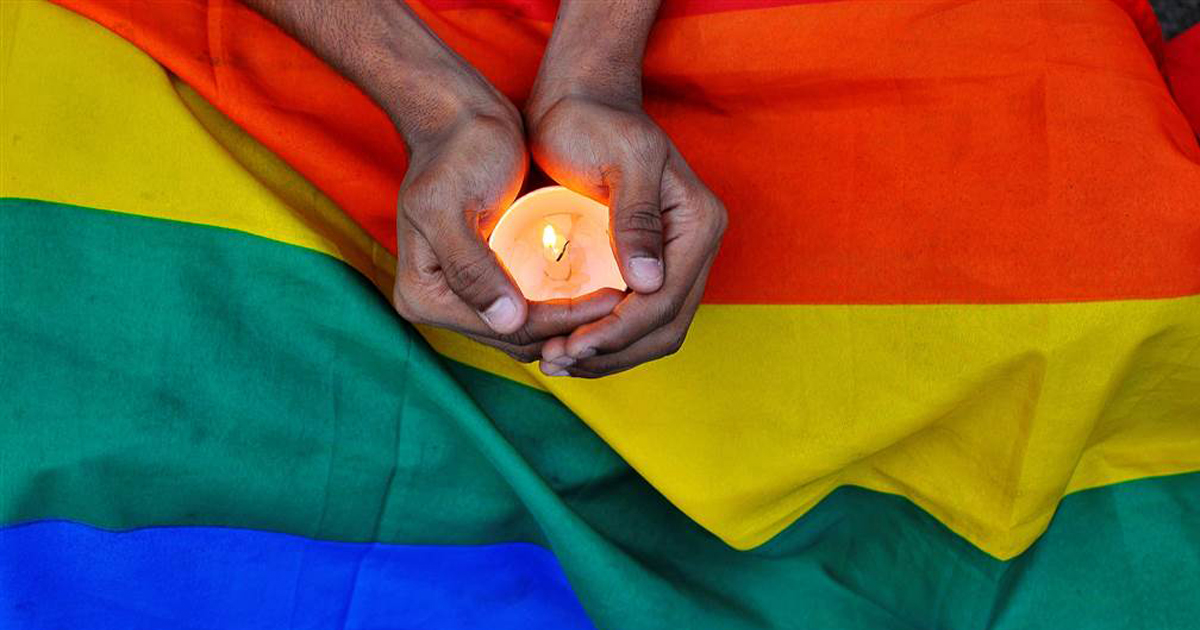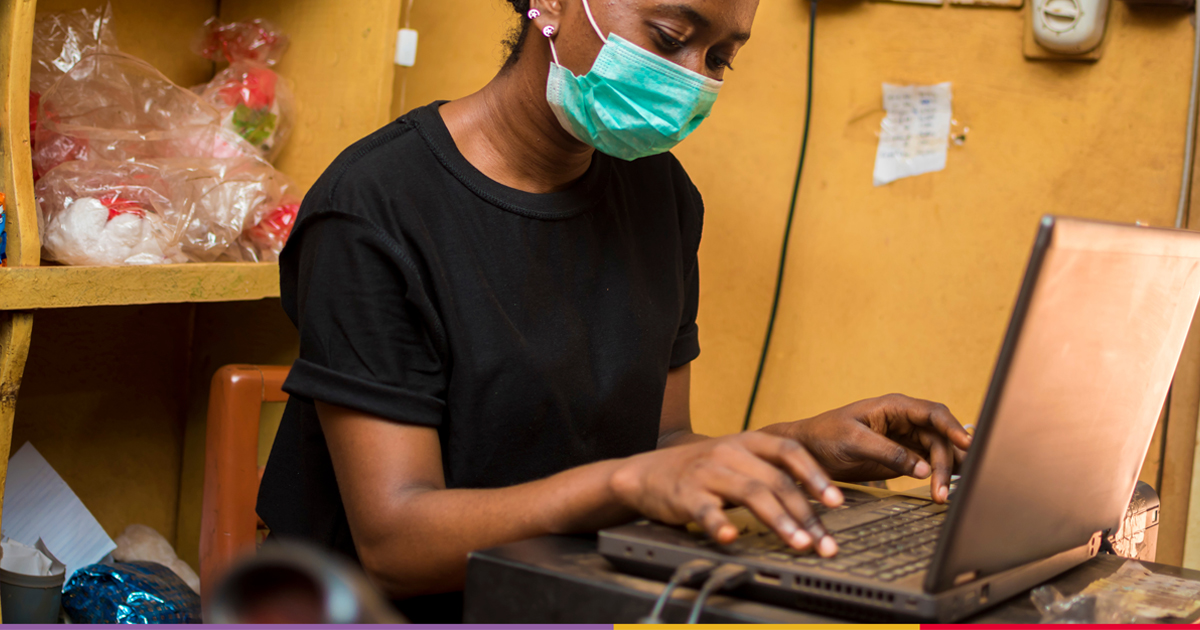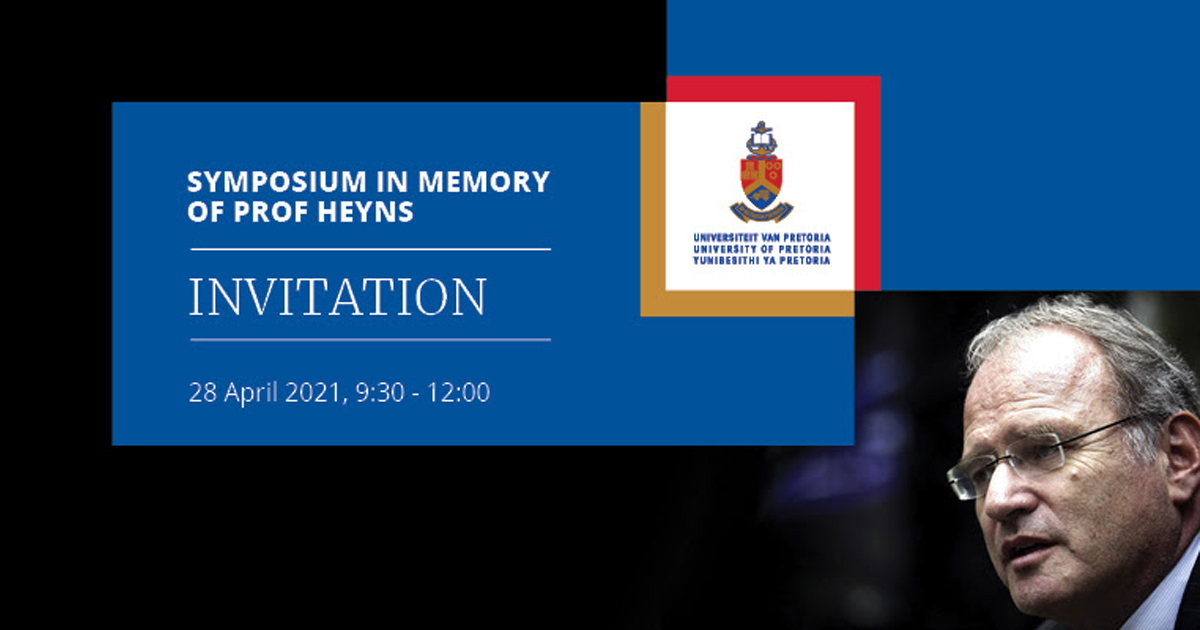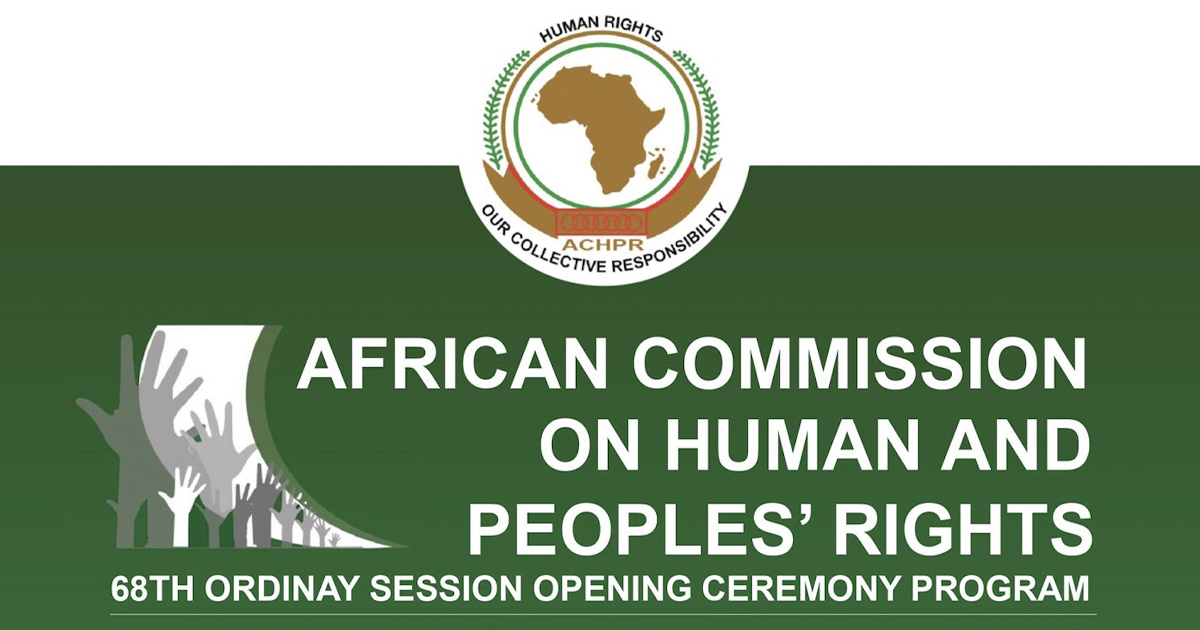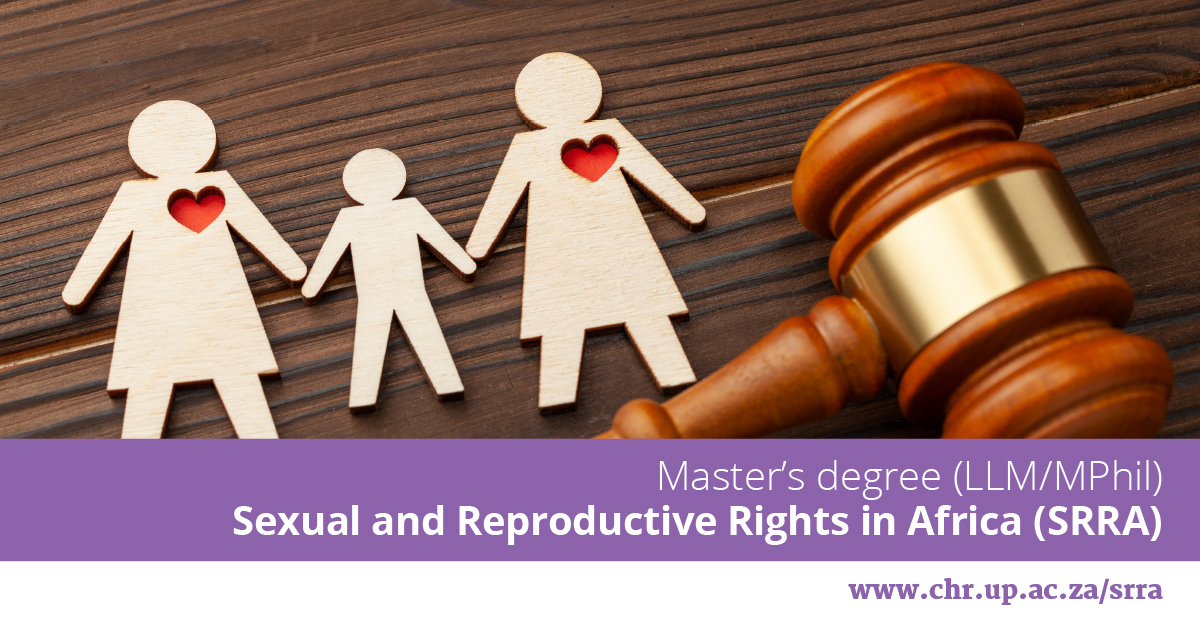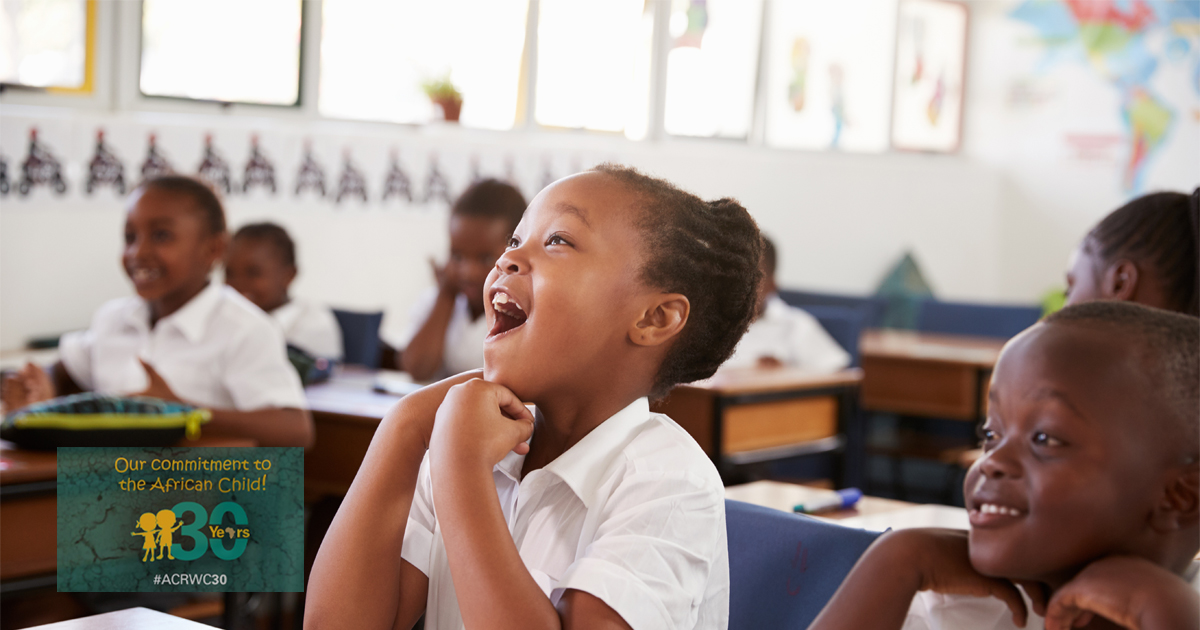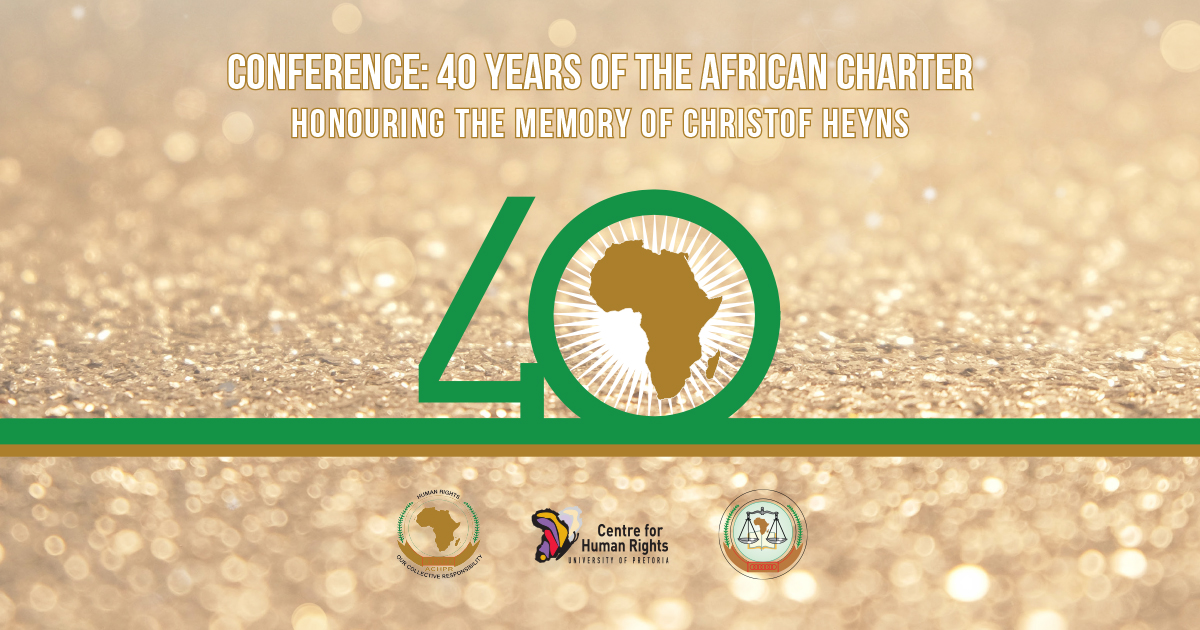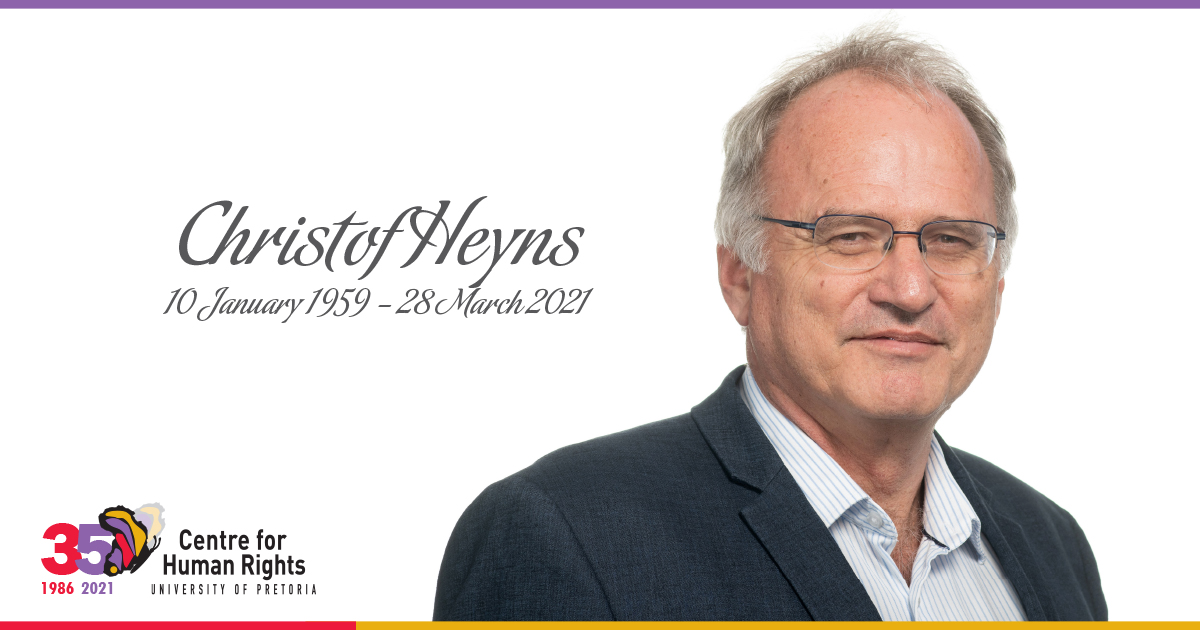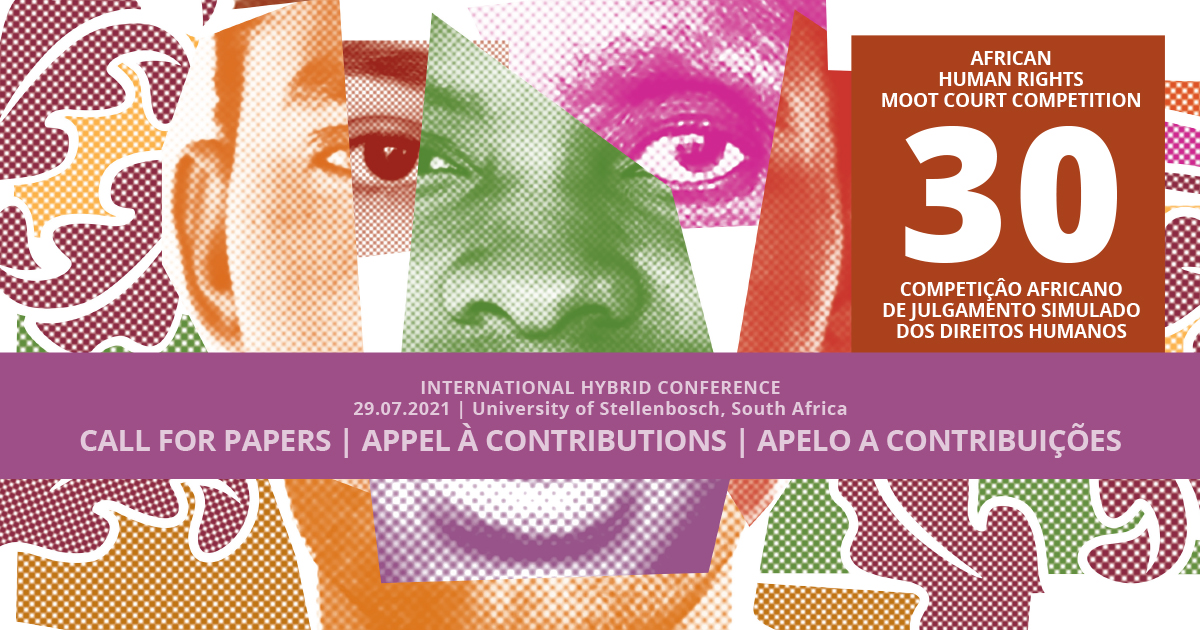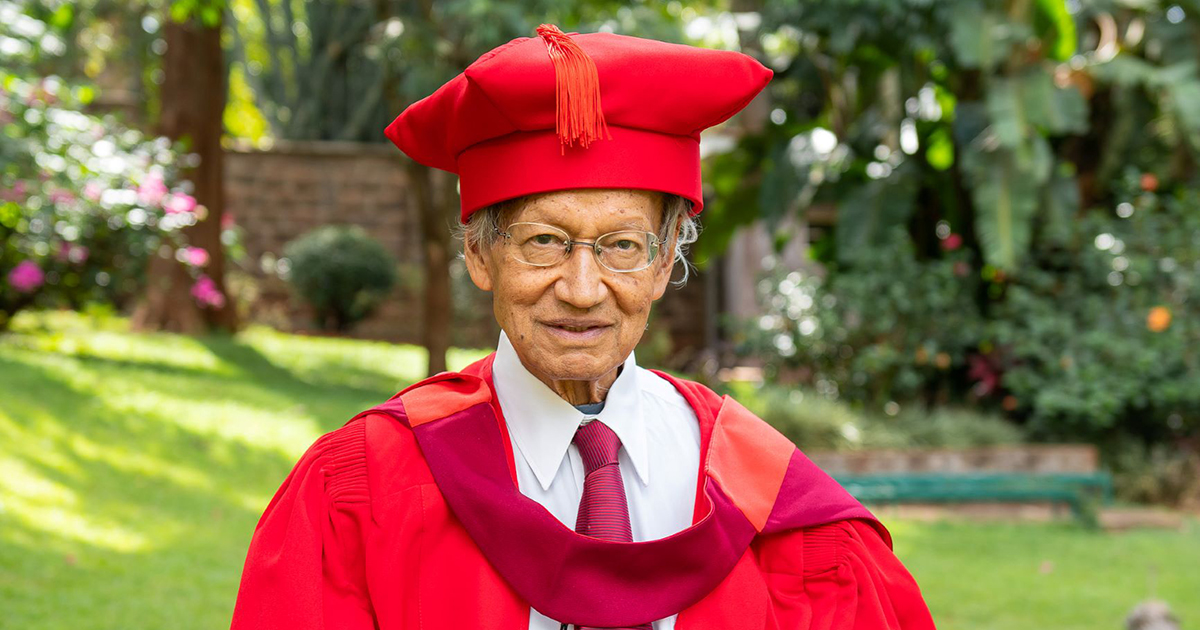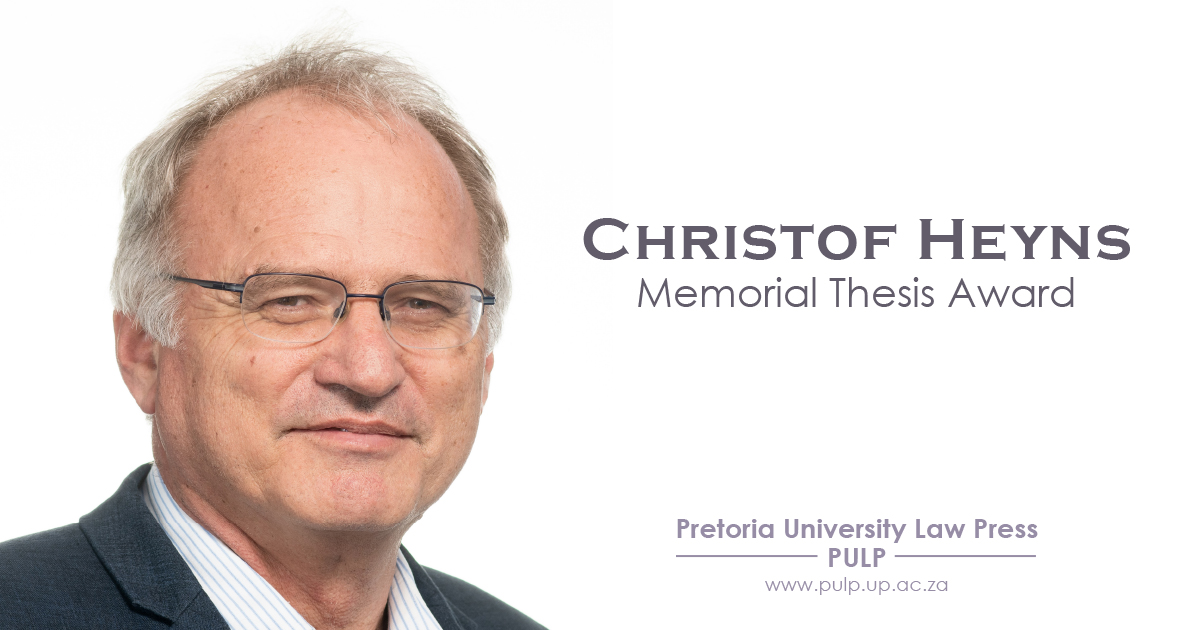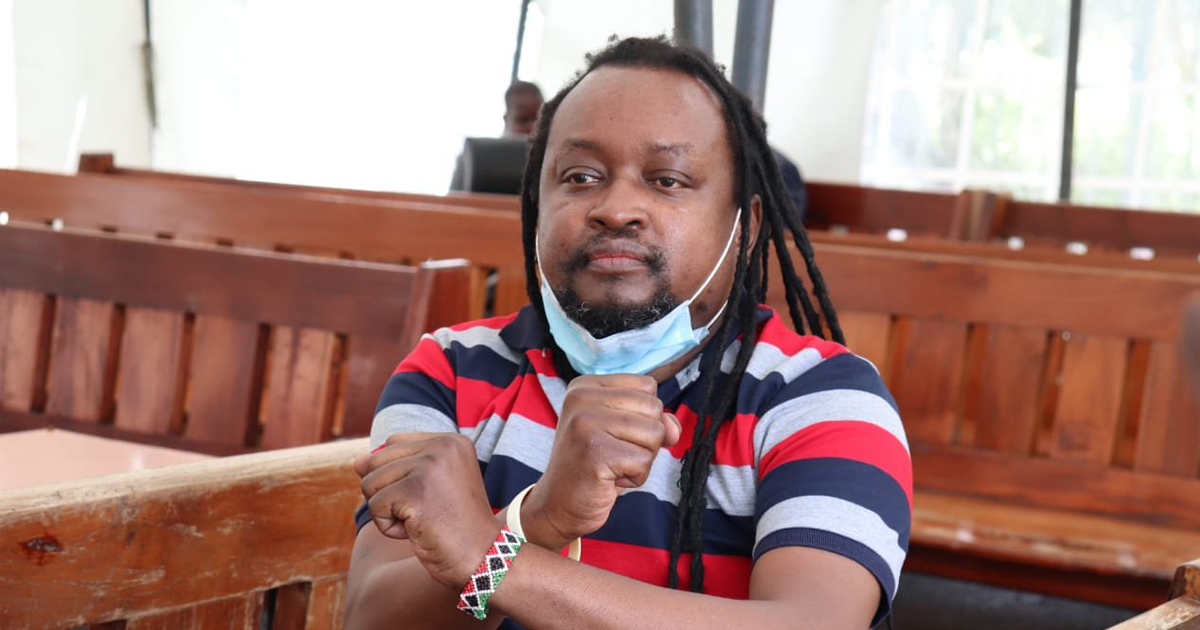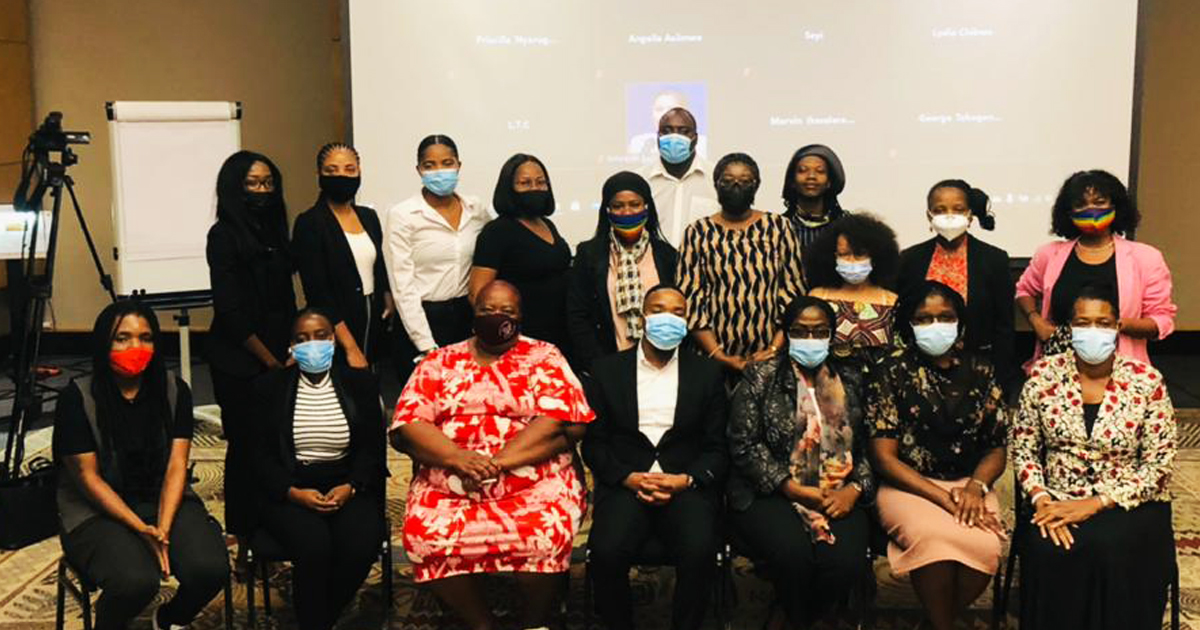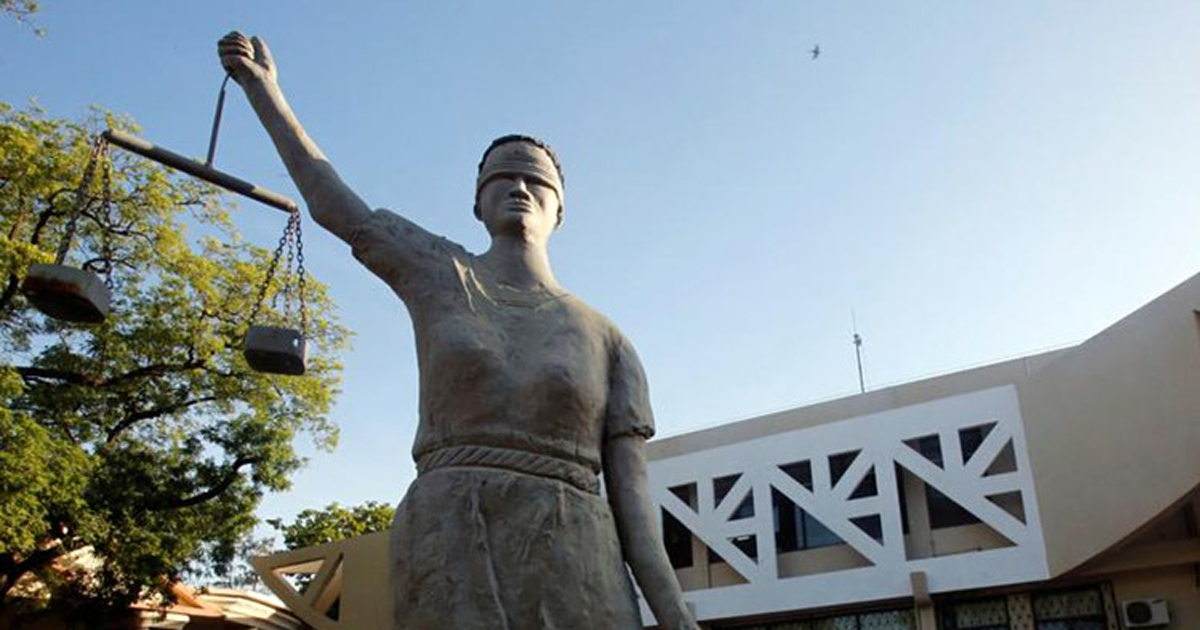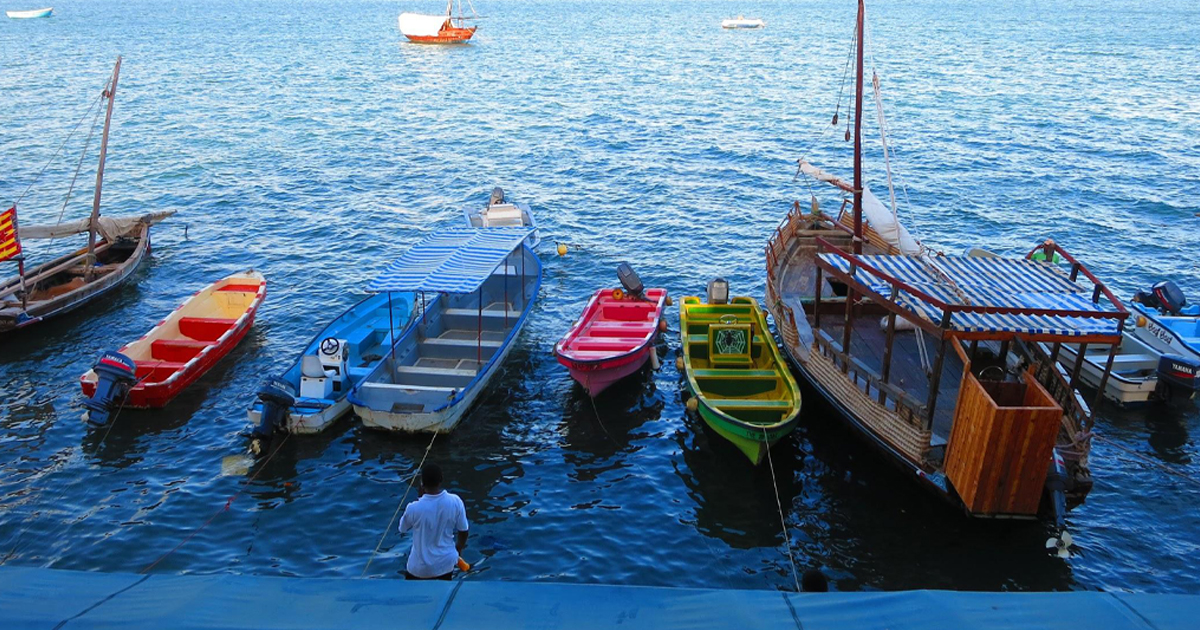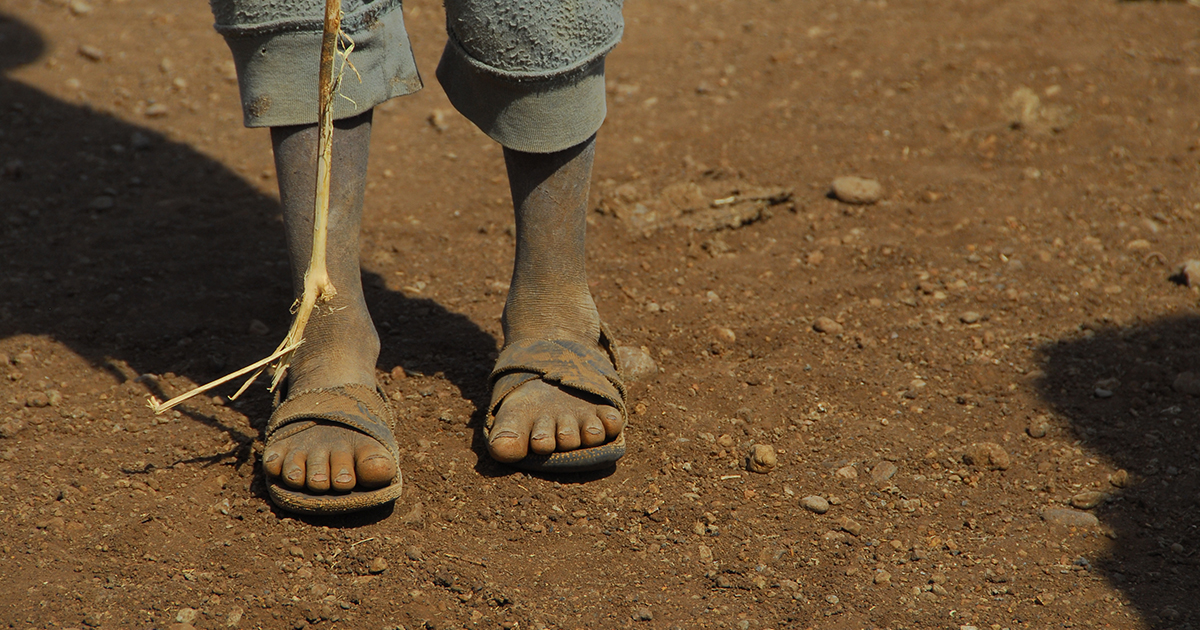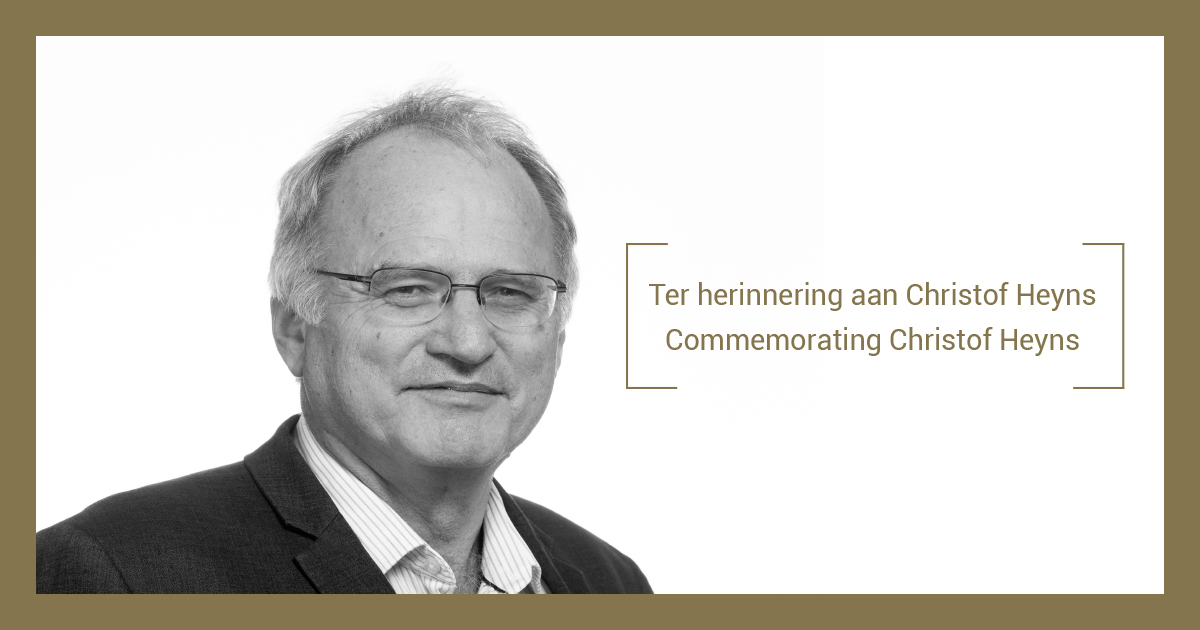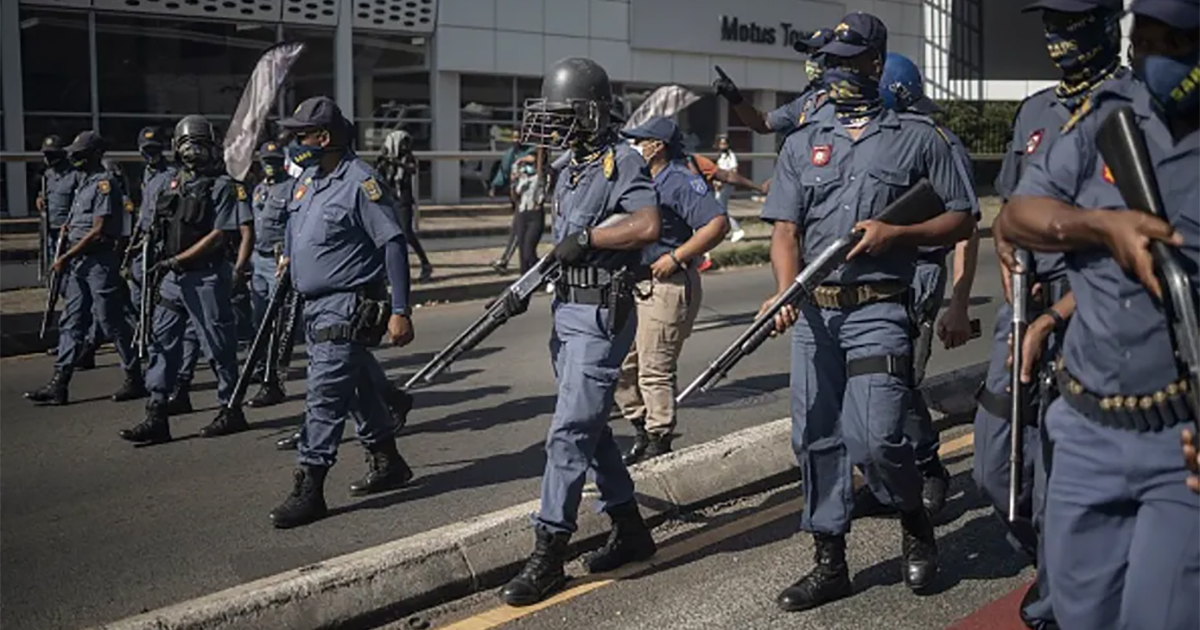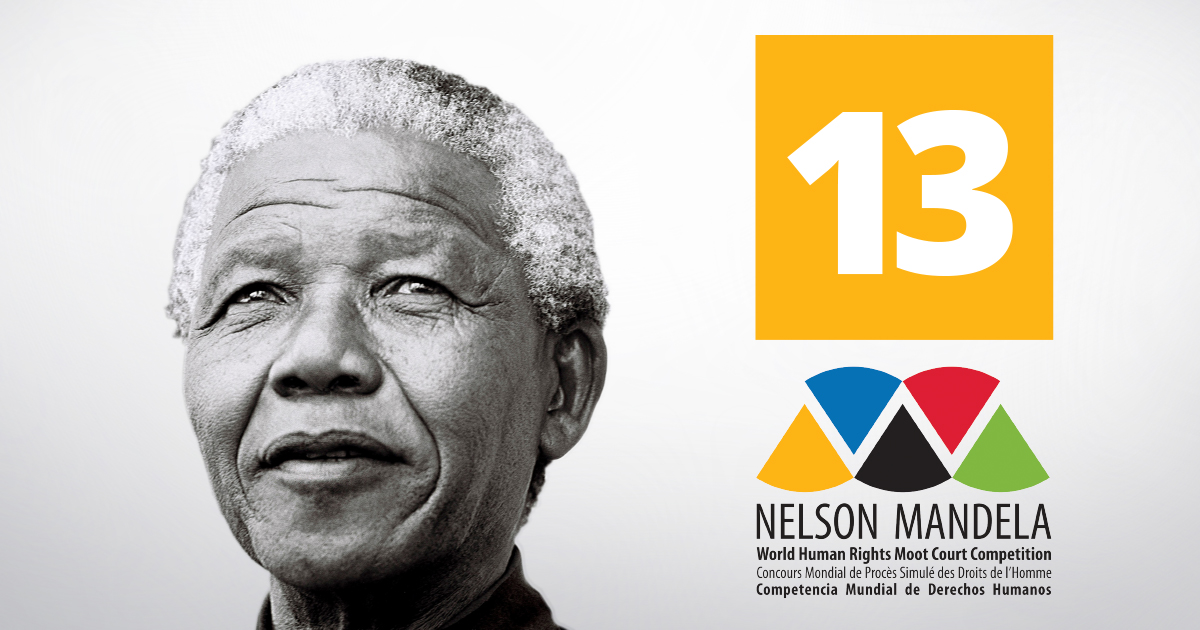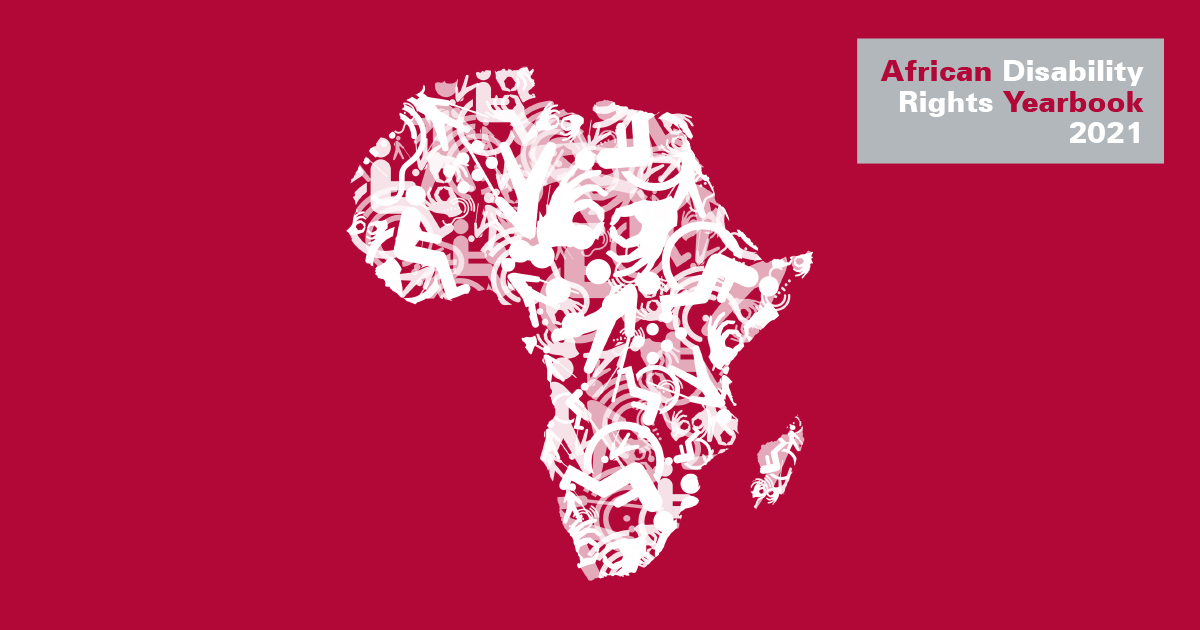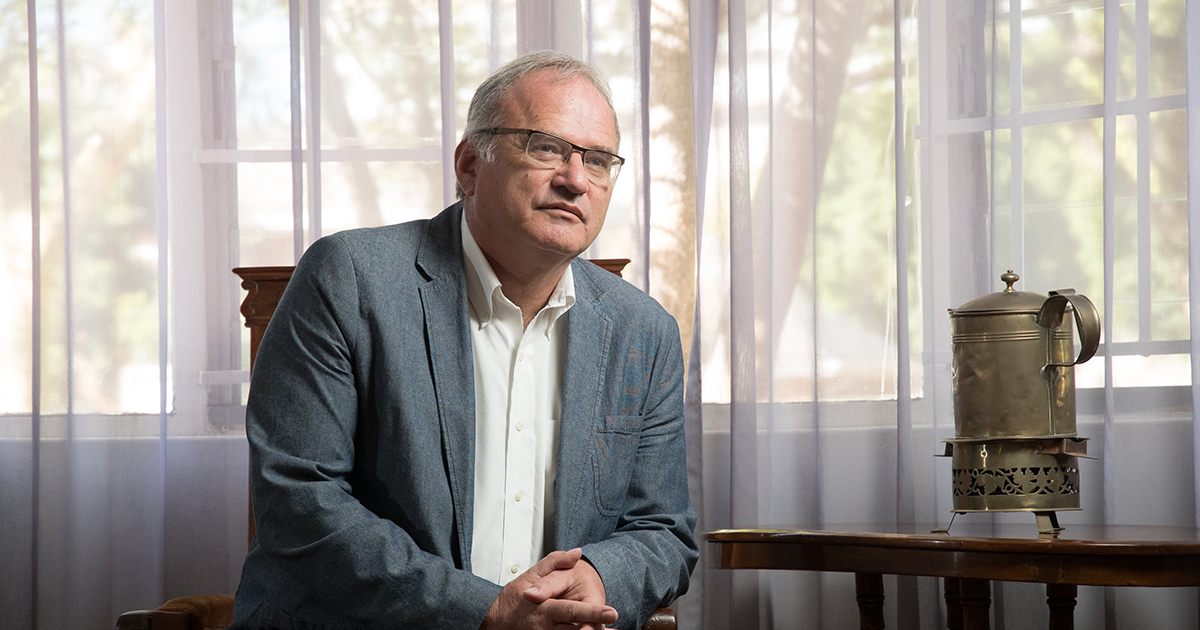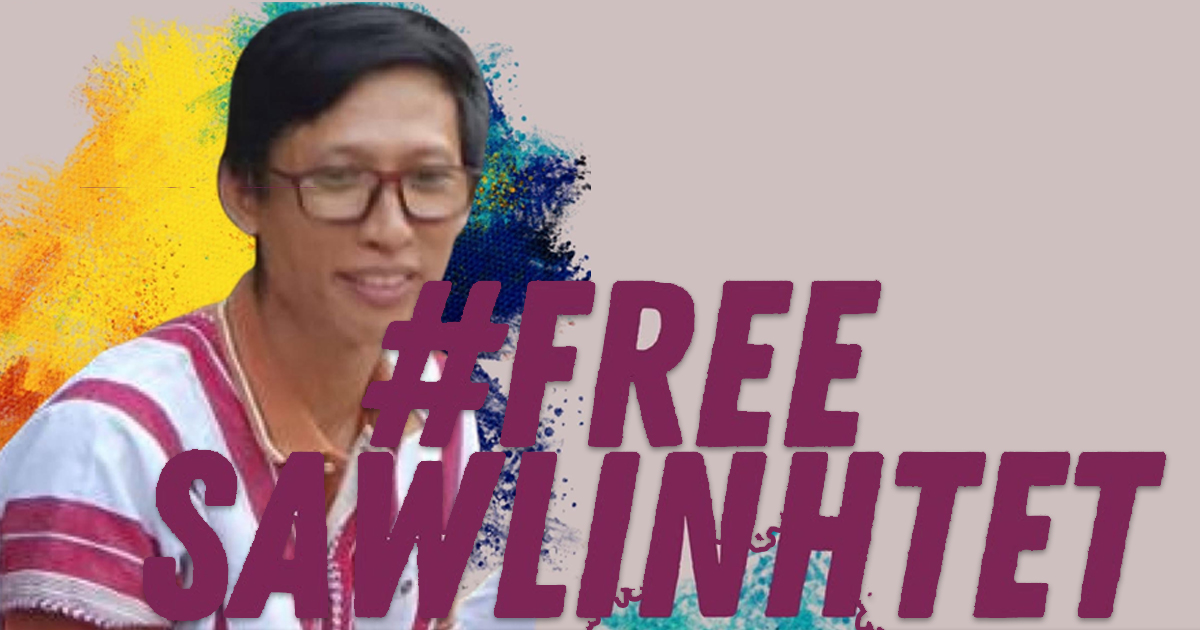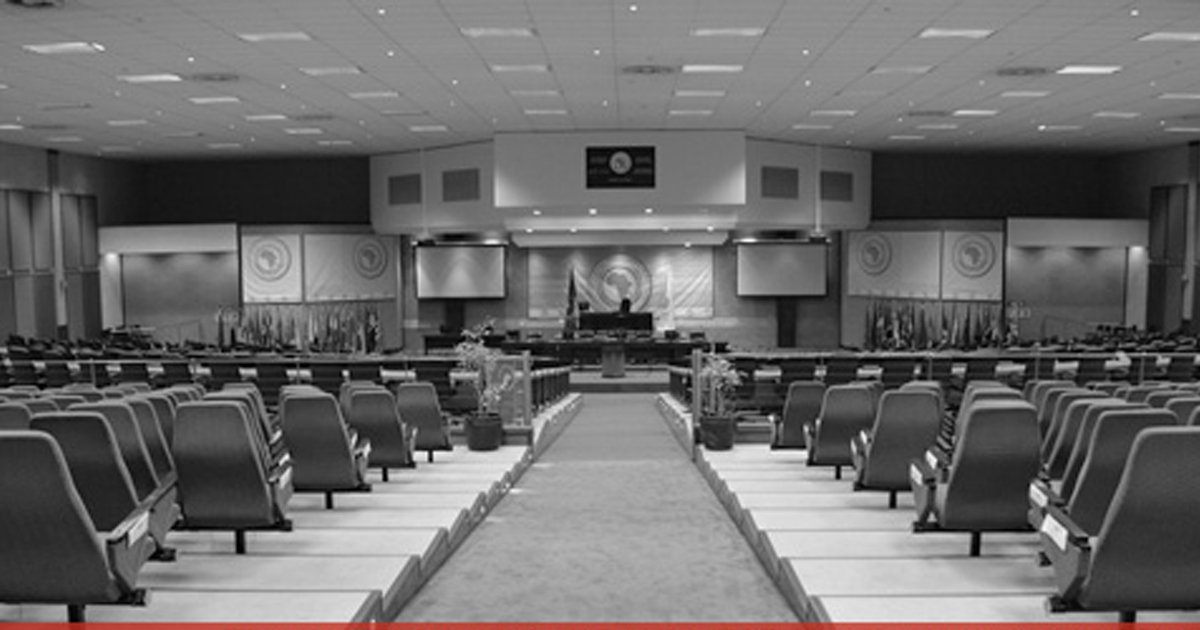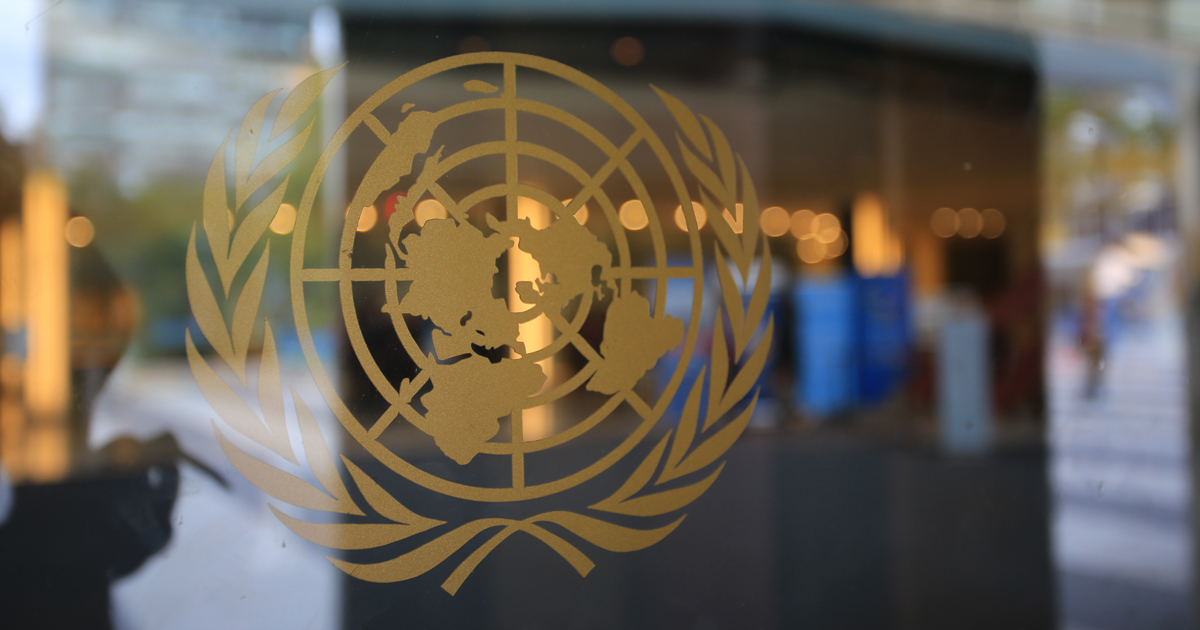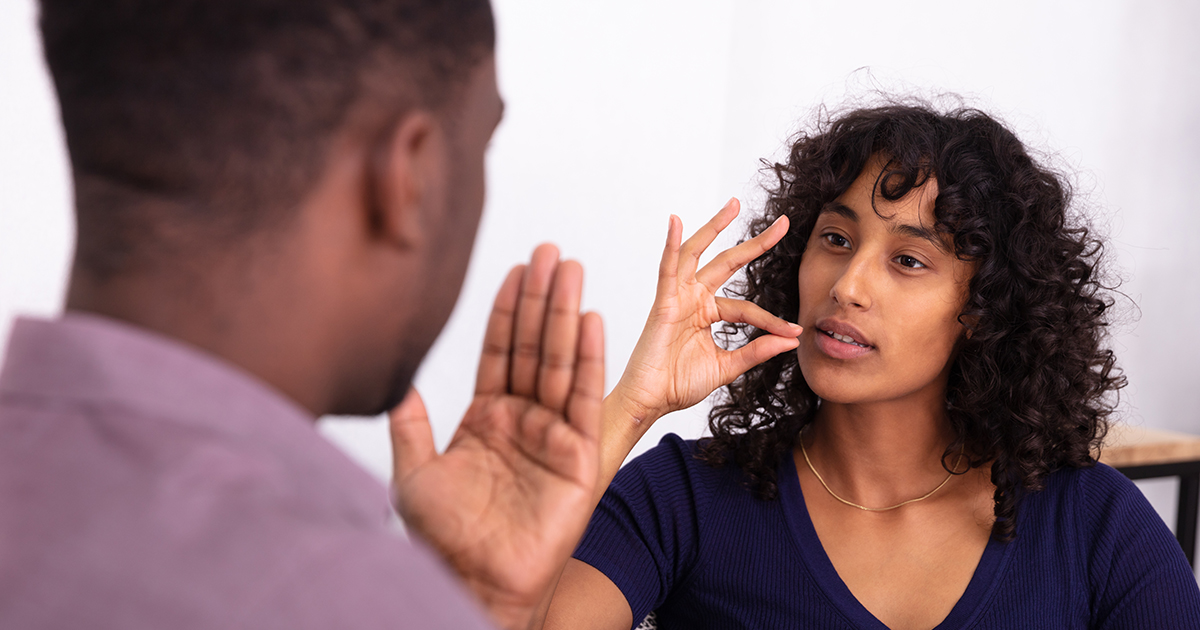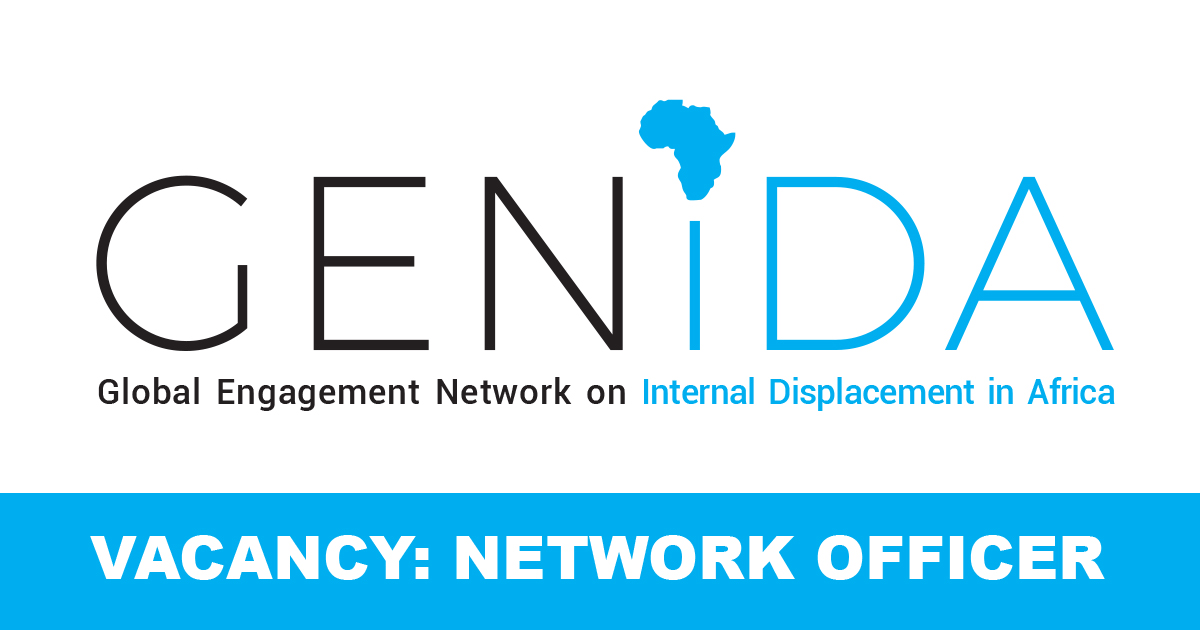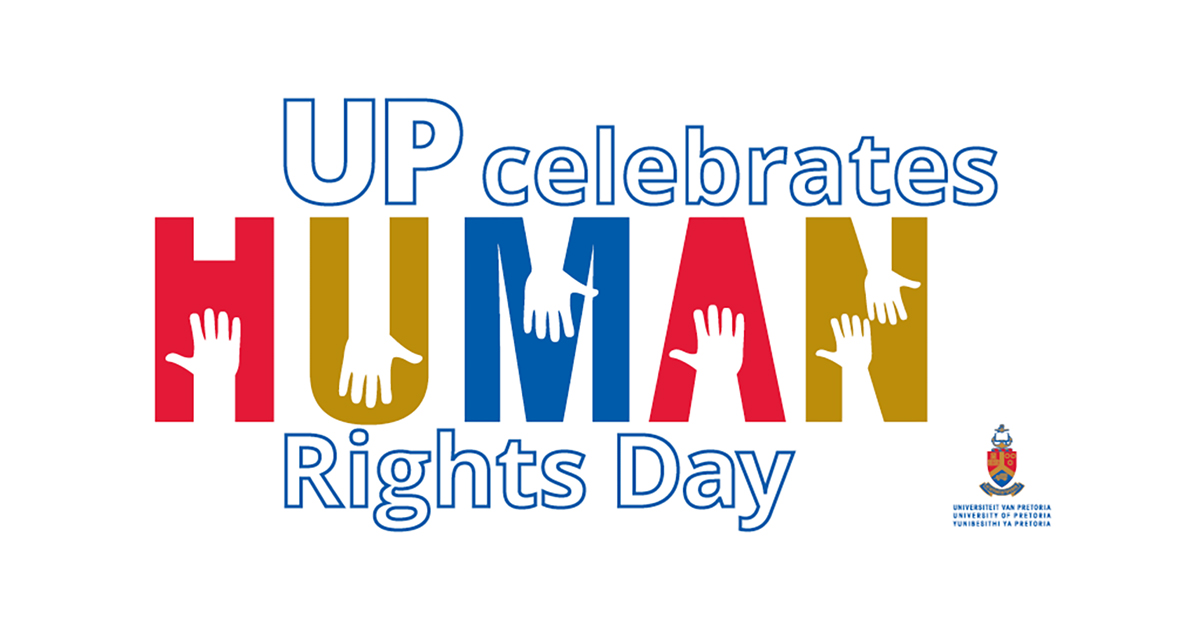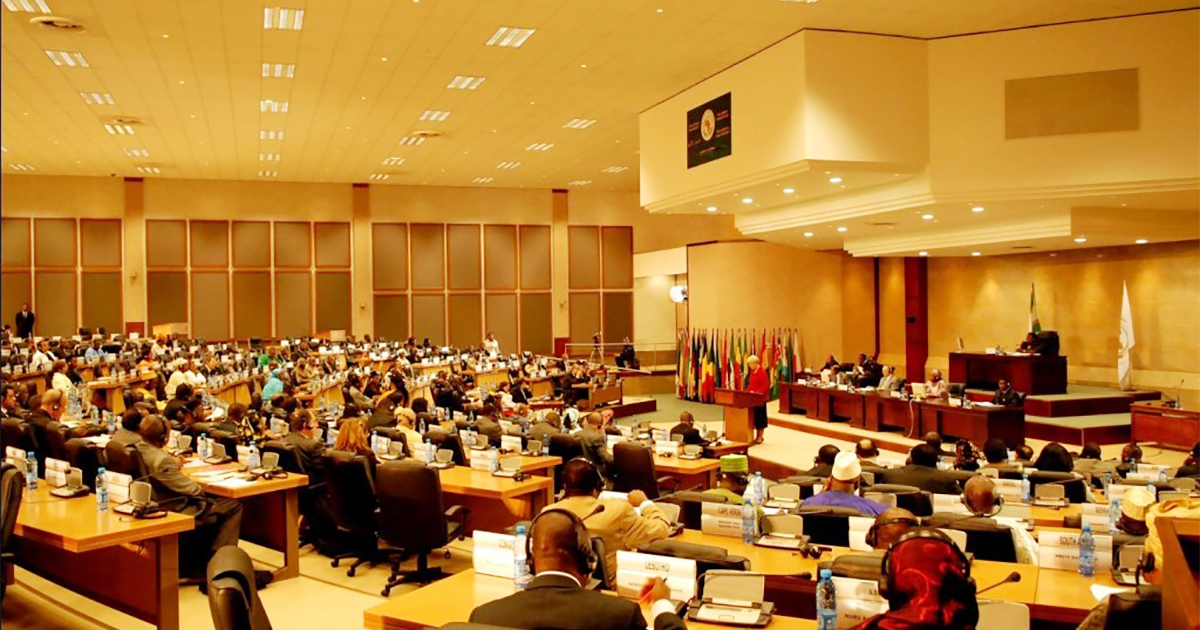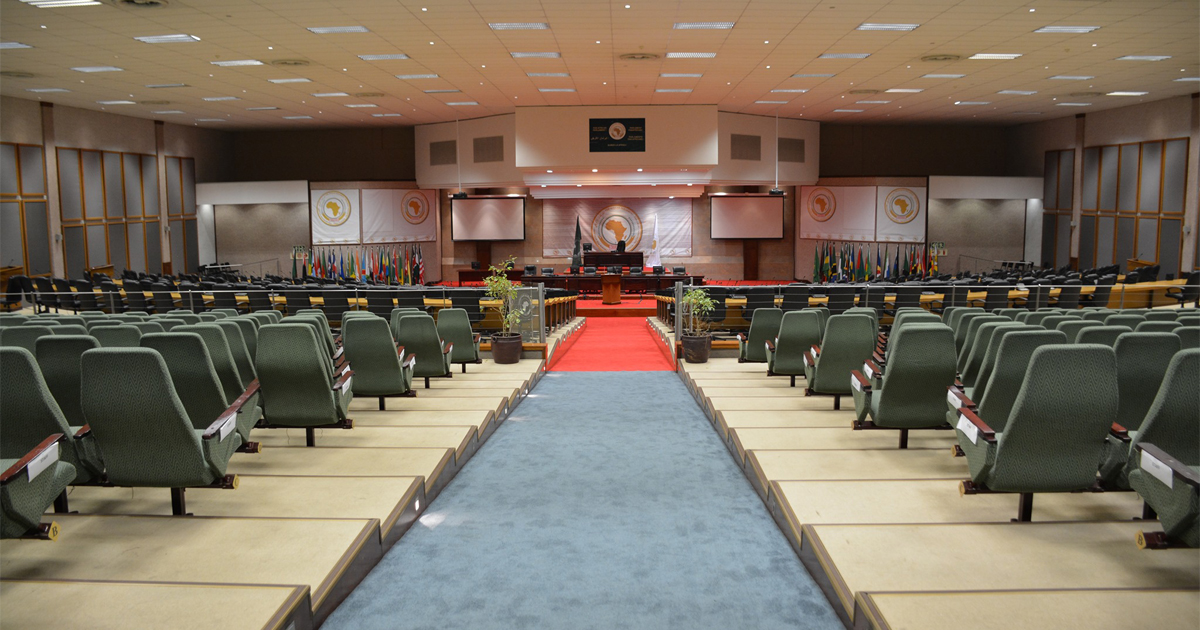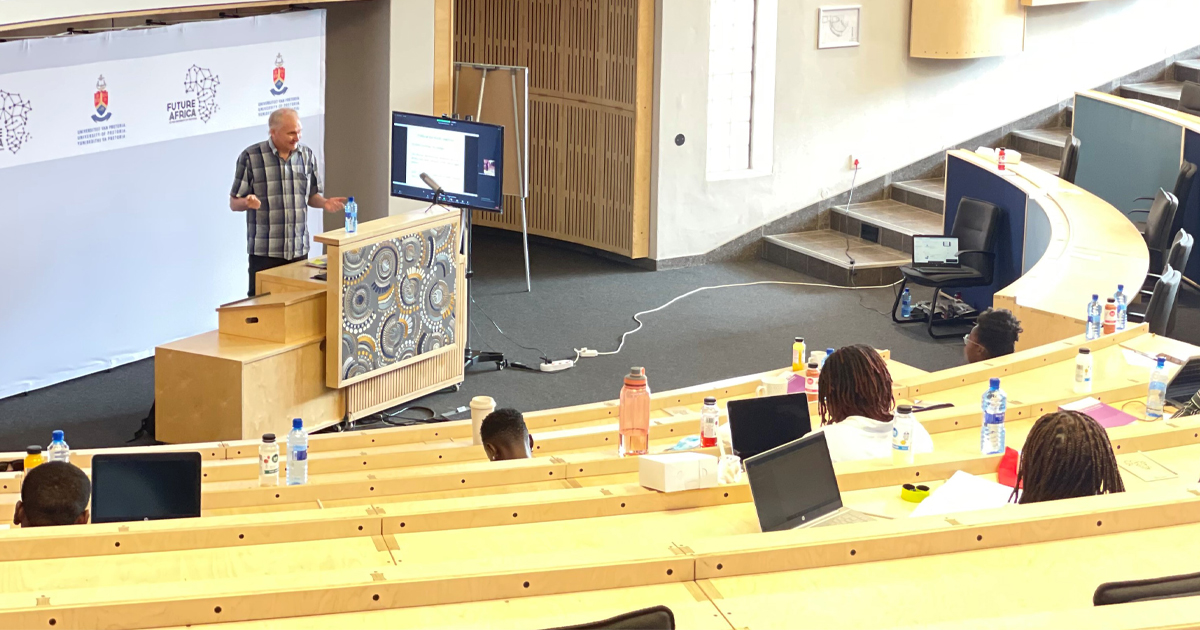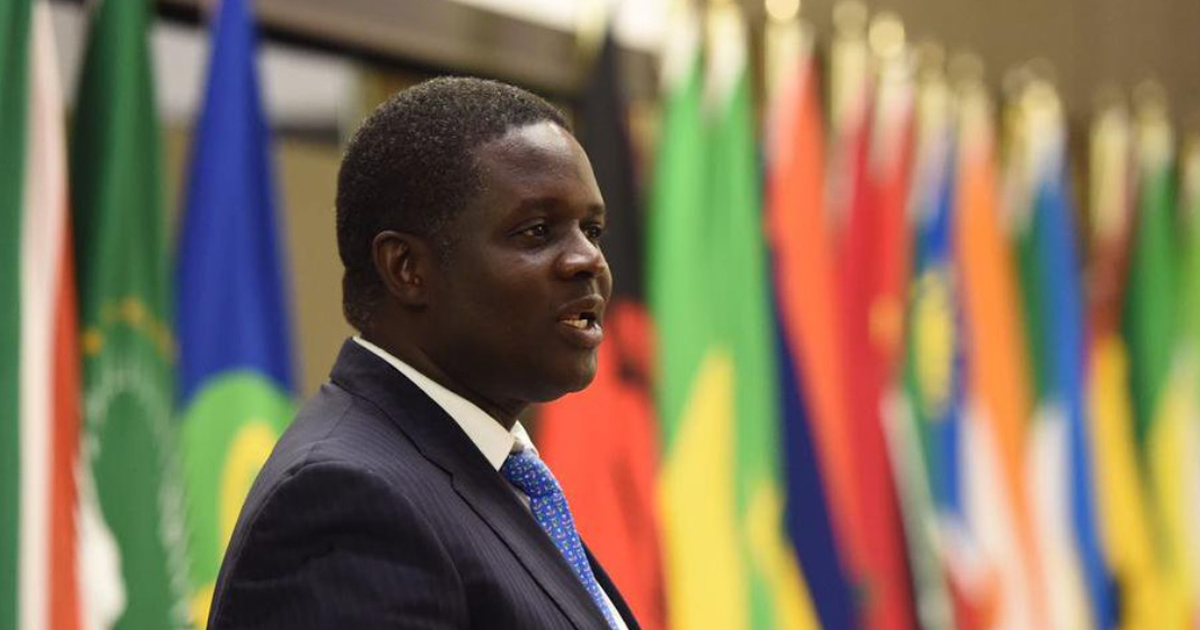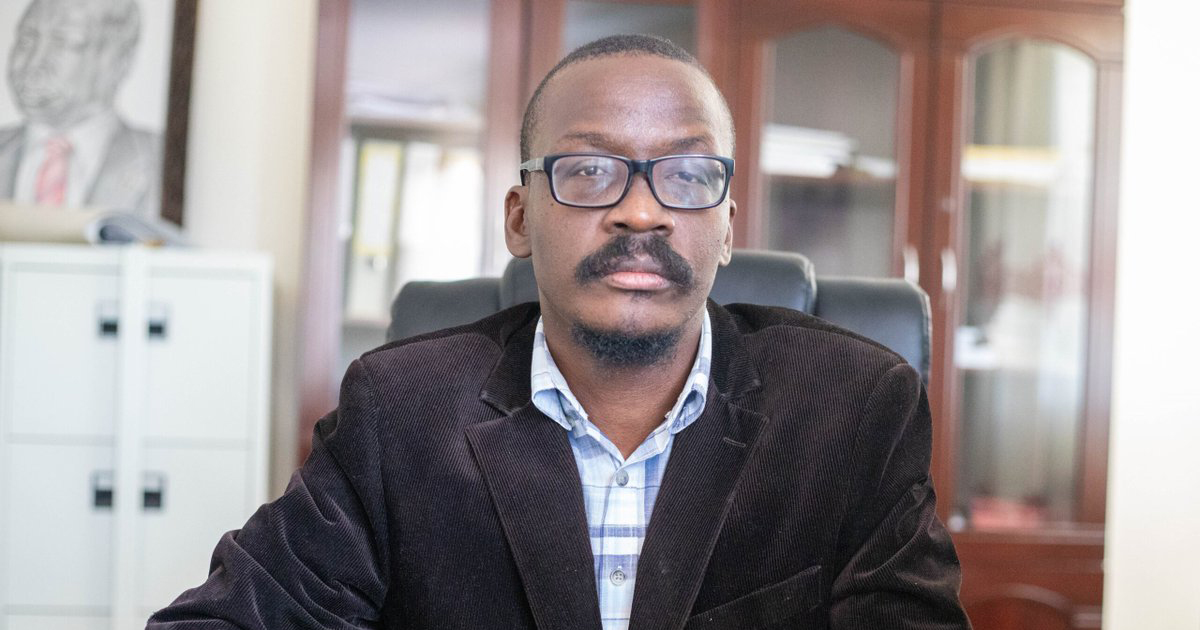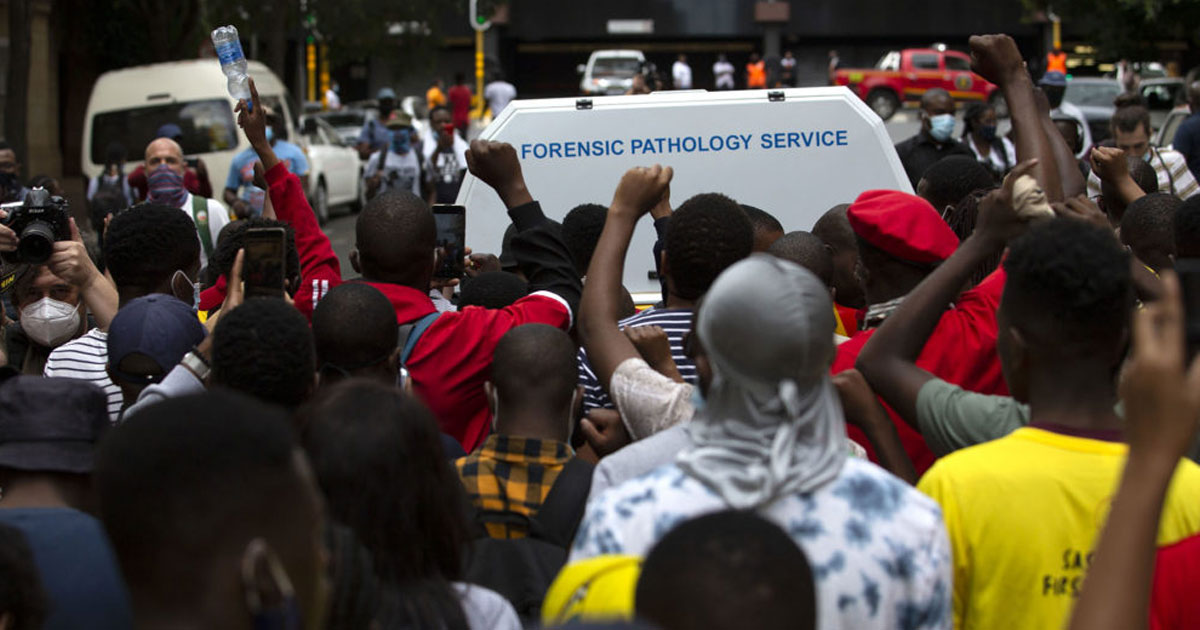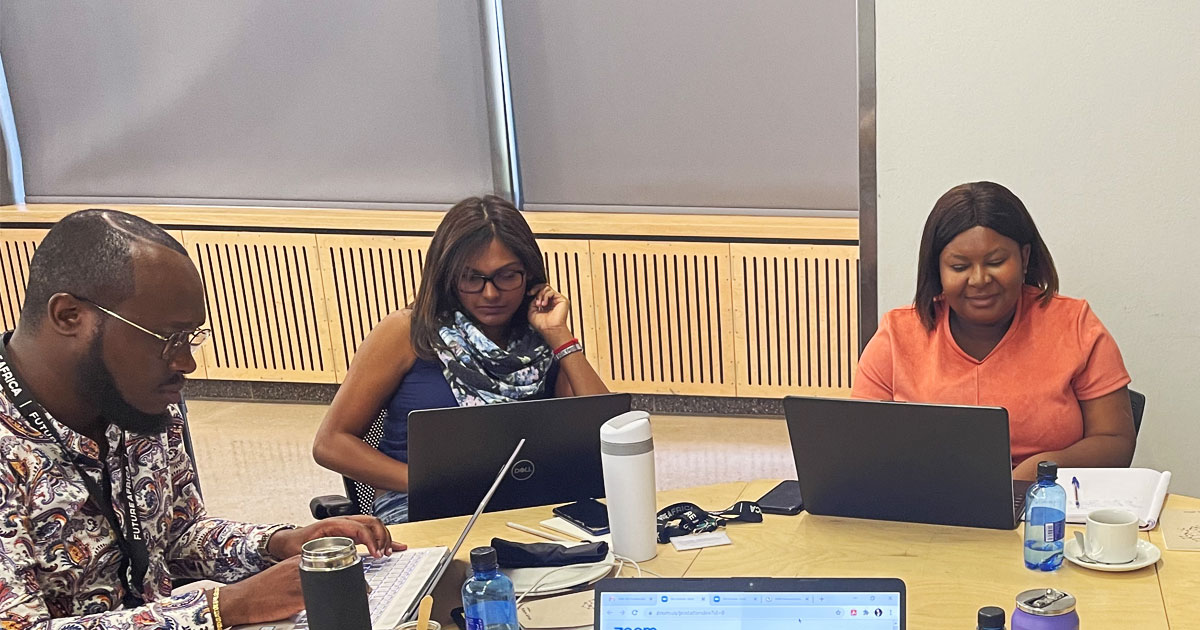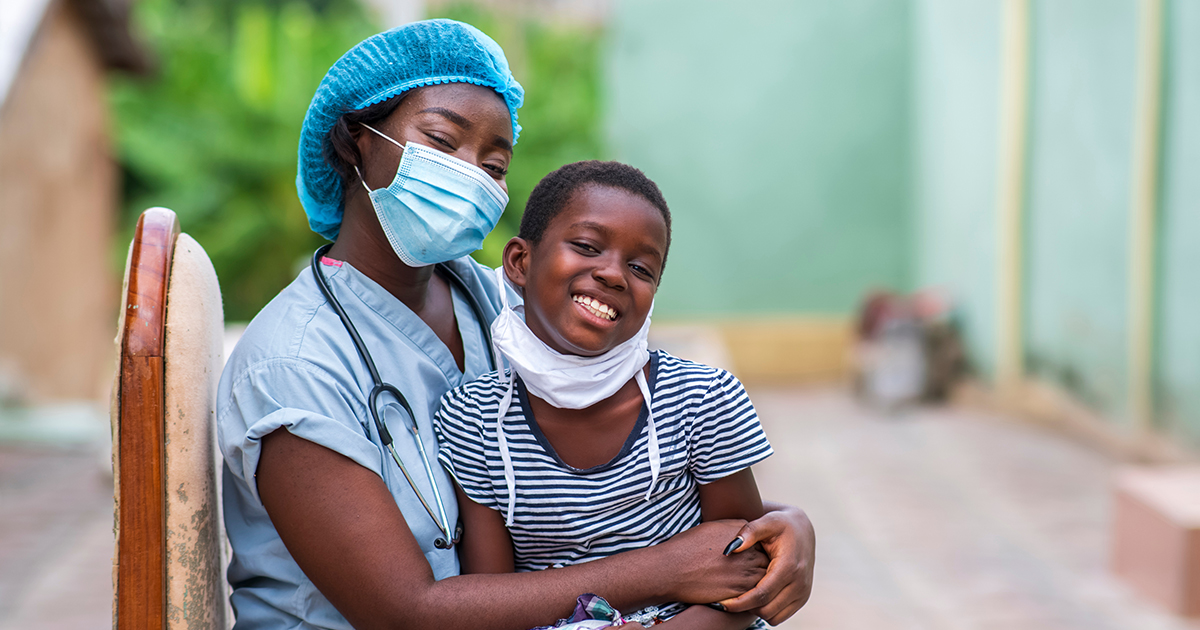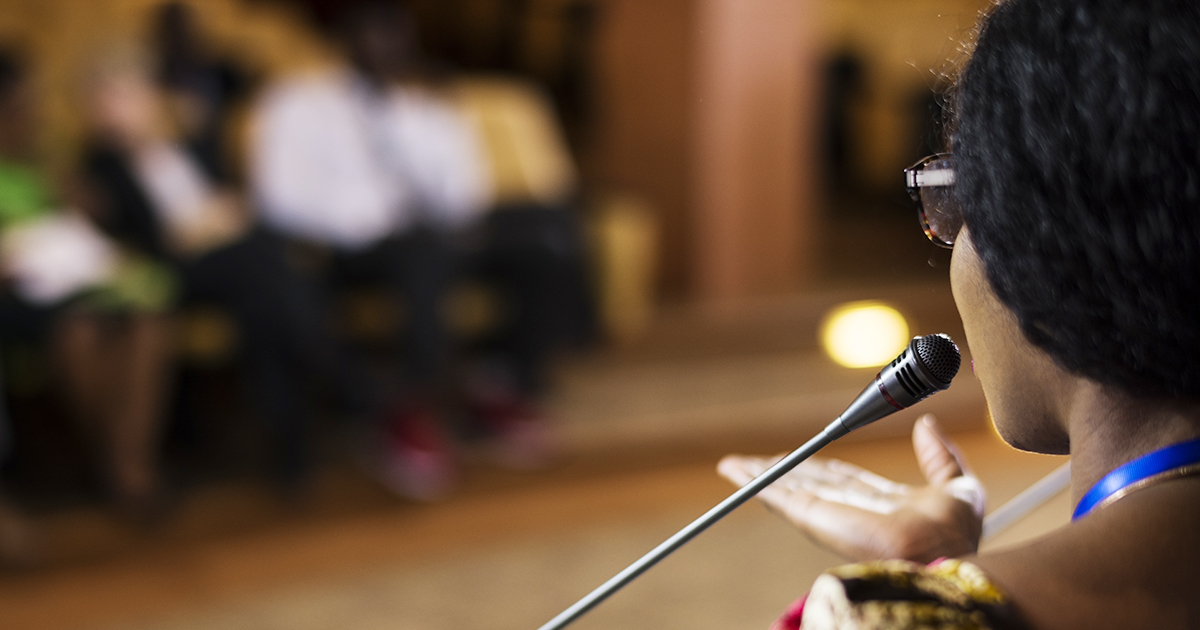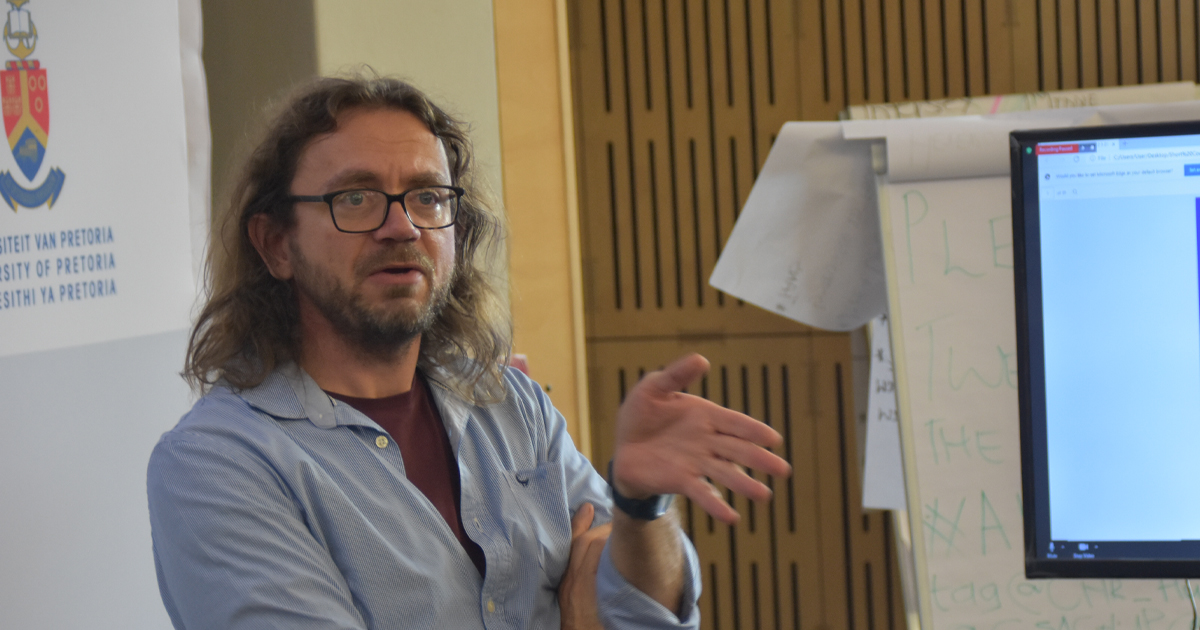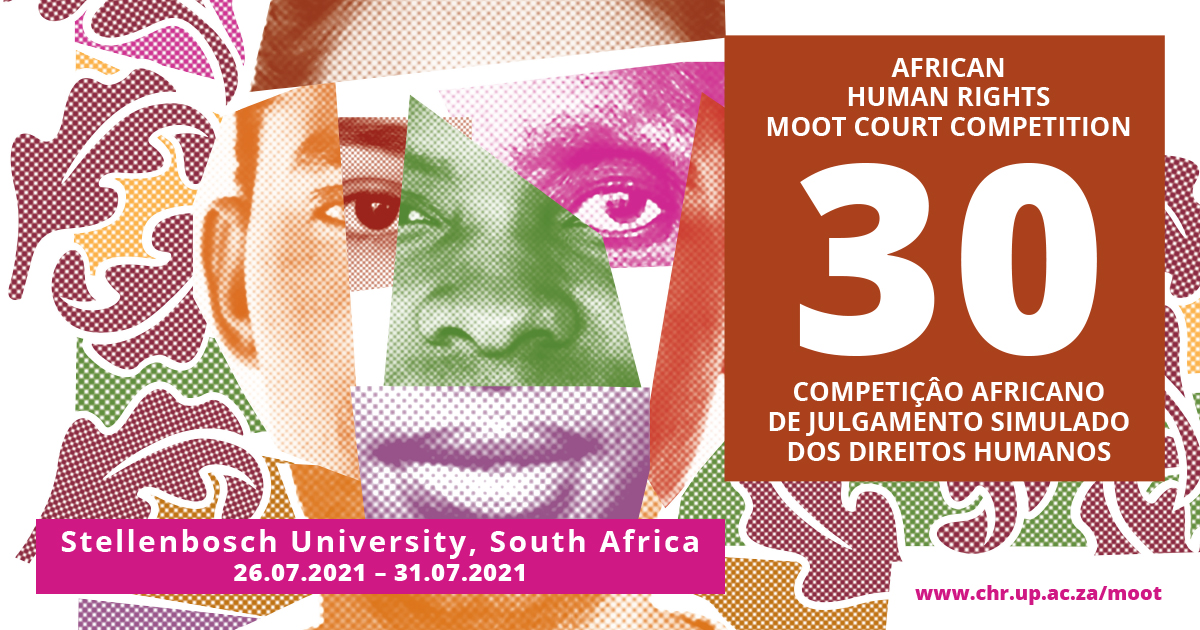- Details
Tech4Rights: The use of assistive technologies for persons with disabilities
In conversation with Mr Silver Francis Oonyu and Mr Wilson Macharia
- Details
At a webinar organised by the Centre for Human Rights, University of Pretoria, in commemoration of the #WorldRefugeeDay, renowned experts drawn from the office of the United Nations High Commissioner for Refugees (UNHCR), African Union Mission in Somalia (AMISOM), civil society (Lawyers for Human Rights) and academia called for increased inclusion of refugees in health systems, education and sports in Africa and made important recommendations to the international community, states, communities hosting refugees, and individuals.
- Details
The Migration Unit at the Centre for Human Rights cordially invites you to the Continental Workshop on Internal Displacement in Africa on 25 June 2021. Global Engagement Network on Internal Displacement in Africa - GENIDA provides an essential platform for the critical engagement and understanding of displacement while recommending solutions for these issues. With an issue that is affecting more than 12 million people in Africa, it is crucial that we advocate for it. #LetsTalkIDPs
- Details
The annual Advanced Human Rights Course on Children’s Rights in Africa is currently underway. The course is hosted as a continuing collaborative effort between the Centre for Human Rights, the Centre for Child Law at the University of Pretoria and the Dullar Omar Institute at the University of Western Cape.
- Details
In June 2011, the Human Rights Council endorsed the United Nations Guiding Principles on Business and Human Rights (UNGPs) in its Resolution 17/4. These principles are based on three pillars: the State duty to protect human rights, the corporate responsibility to respect human rights, and access to remedy. Having garnered a large consensus, the UNGPs had constituted a watershed moment in the quest for corporate accountability and ending business impunity. However, the 10th anniversary of the UNGPs comes against the background of widespread business-related human rights abuses in Africa. Across the continent, business activities, especially by transnational corporations (TNCs) and extractives industries, impact daily labour rights, the right to a clean environment, the right to water, the right to health, communities’ rights to land, to list only a few. Unfortunately, no effective remedies are available for these breaches. Corporate impunity relating to human rights violations continues to run rampant on the continent, mainly with the complicity of corrupt states agencies captured by corporations.
- Details
The Pretoria University Law Press (PULP) invites you to the virtual book launch of National Commissions of Inquiry in Africa: Vehicles to pursue accountability for violations of the right to life?, edited by Thomas Probert and Christof Heyns (2020). Presentations will be followed by a Q&A session.
- Details
The Centre for Human Rights, University of Pretoria (CHR), the Human Rights Institute of South Africa (HURISA) and the South African Human Rights Commission (SAHRC) cordially invite you to a celebratory event to reflect on the contributions of South Africa and South Africans to the African Charter and its application and implementation.
- Details
The Centre for Human Rights (CHR), Faculty of Law, University of Pretoria, and the Pan-African Parliament Civil Society Forum (PAP CSO Forum) held a webinar on 9 June 2021, to discuss the recently postponed elections of the PAP, and issues related to the Fourth Ordinary Session of the Fifth Pan-African Parliament (PAP). This virtual event was attended by 180 participants from across the continent.
- Details
The Migration Unit at the Centre for Human Rights, University of Pretoria, cordially invites you to a webinar on the inclusion of refugees in Africa in health, education and sports in the context of the COVID-19 pandemic. The webinar will engage experts in the field to discuss the critical importance of, and challenges to, the inclusion of refugees in health systems, education and sports in the COVID-19 era in the region. Presentations will be followed by a Q&A session.
- Details
On 16 June every year, the African continent celebrates the Day of the African Child (DAC). The African Union (AU) designated this Day to commemorate the contributions of the children and young people to the liberation of South Africa from apartheid, exemplified by many of them being shot during protest action on this day in 1976. In the years since its establishment, the DAC has been used to highlight pertinent issues affecting the rights and welfare of children in Africa, and to remind African countries of their promise and commitments to protect the rights of children in Africa.
- Details
The Centre for Human Rights, Faculty of Law, University of Pretoria, cordially invites you to a webinar organised by the Democracy and Civic Engagement Unit on youth interaction and perception of political parties in South Africa. The webinar will interrogate issues that influence youth interaction with political parties, particularly on campus. Looking at how on-campus politics are a microcosm of broader political engagement; the discussion aims to reveal how the interaction shapes the youth’s behaviour in politics and elections and ultimately how it shapes the youth as leaders.
Invitation: Webinar on accelerating the implementation of Agenda 2040 for an Africa fit for children
- Details
The Centre for Human Rights, Faculty of Law, University of Pretoria, the Forum for African Women Educationalists (FAWE), the ACERWC CSO FORUM and the Eastern Africa Child Rights Network, cordially invite you to a webinar on Tuesday 15 June 2021, on the occasion of the Day of the African Child (DAC) which is commemorated on 16 June every year. The webinar will focus on the theme of Accelerating the implementation of Agenda 2040 for an Africa fit for children.
- Details
On 13 June, the world celebrates International Albinism Awareness Day (IAAD). For years, the Centre for Human Rights has worked to promote the rights of persons with albinism through various initiatives.
- Details
The Protocol to the African Charter on Human and Peoples’ Rights on the Rights of Persons with Disabilities in Africa (African Disability Rights Protocol) was adopted on 30 January 2018 by the African Union Heads of States.
- Details
The Pan-African Parliament
In conversation with Clement Mavungu
- Details
The Centre for Human Rights, University of Pretoria, seeks to appoint a Video Documentary Consultant on the Master’s Programme in Human Rights and Democratisation in Africa.
- Details
The Centre for Human Rights, University of Pretoria, seeks to appoint a consultant to conduct a study on the Impact of the Master’s programme in partner universities.
- Details
The 30th edition of the African Human Rights Moot Court Competition adopted, for the second year in a row, a hybrid format following the impact of the COVID-19 pandemic. From 24 May to 4 June, the English preliminary rounds of the African Moot took place virtually. The quarterfinals, semi-finals, and final rounds will take at Stellenbosch University, Stellenbosch, South Africa, from 26 to 30 July 2021.
- Details
The Centre for Human Rights, University of Pretoria (the Centre) is deeply concerned about the recent suspension of Twitter by the Federal Government of Nigeria on 4 June 2021. The suspension came after Twitter deleted a tweet by the President of Nigeria, Muhammadu Buhari.
- Details
Students from the MPhil/LLM in Human Rights and Democratisation (HRDA) programme at the Centre for Human Rights, University of Pretoria, held a vigil at the Future Africa Campus on 28 May 2021. The vigil was held to mourn the lost lives in Cameroon as a result of the ongoing conflict. The conflict is estimated to have resulted in the deaths of over 2000 lives and displaced over 60 000 Cameroonians. The vigil was held under the auspices of the relaunch of the #StopCameroonViolations campaign.
- Details
On Friday 28 May 2021, a delegation of students on the Human Rights and Democratisation in Africa (HRDA) Programme at the Centre for Human Rights, Faculty of Law, University of Pretoria, met with the Cameroonian High Commissioner to South Africa, HE Mr Anu’a-Gheyle Solomon. This meeting was held under the auspices of a three-week campaign dubbed #StopCameroonViolations. The HRDA students relaunched this campaign on 22 May 2021 in response to the escalating conflict in Cameroon which started as a conflict over cultural rights and identity in the English-speaking regions.
- Details
The Centre for Human Rights, Faculty of Law, University of Pretoria, is calling on the African Union (AU), the AU Member States, the 8 Regional Economic Communities (RECs), the Pan-African Parliament and Embassies and High Commissions to improve the conditions of African migrants on the continent and to give effect to the spirit of Pan-Africanism and inclusivity in Africa.
- Details
On Saturday 29 May 2021, the Centre for Human Rights, University of Pretoria, launched the #ReviveSADCTribunal advocacy campaign at the Future Africa Campus. Students on the LLM/MPhil in Human Rights and Democratisation in Africa (HRDA) programme spearheaded the launch of the campaign.
- Details
The Centre for Human Rights, Faculty of Law, University of Pretoria, and the Pan-African Parliament Civil Society Forum (PAP CSO Forum) are deeply concerned about the recent events that have occurred during the Fourth Ordinary Session of the Fifth Pan-African Parliament currently underway in Midrand, South Africa.
- Details
Against the background of the 30-year anniversary since the adoption of the Charter, the Centre instituted a multi-country study on the implementation of the African Charter on the Rights and Welfare of the Child (the Charter) in ten African Countries, in 2020. The study documented the extent to which the ten countries have domesticated and implemented the Charter.
- Details
The Democracy and Civic Engagement Unit at the Centre for Human Rights, University of Pretoria, cordially invites you to the Pan-African Parliament Civil Society Forum to be held on 9 June 2021.
- Details
The COVID-19 lockdowns, restrictions and regulations caused a momentary shuddering of the democratic criminal justice systems worldwide, including in Africa. The legal responsibilities and powers of the law enforcement officials such as the police and the military became blurry, as behind the cloak of state of emergencies governments unnecessarily extended the powers of law enforcement officials with little to no accountability and oversight measures put in place to safeguard the chances of abuse of the system.
- Details
#AgeWithRights Campaign: Call to ratify the Protocol on Older Persons
In conversation with Isaac Mamatela, Lydia Chibwe, Ramatoulie Jallow and Hilma Moses
Press Statement: Centre for Human Rights condemns arrests of LGBTIQ+ human rights defenders in Ghana
- Details
The Centre for Human Rights, Faculty of Law, University of Pretoria, condemns the recent series of attacks against the LGBTIQ+ community and LGBTIQ+ human rights defenders in the Republic of Ghana. In a press release dated 21 May 2021, the Ghana Police Service claimed it had arrested 21 persons (16 females and 5 males) at a ‘supposed conference, advocating LGBTQI activities’. The police arrested these human rights defenders, who were attending a paralegal training, and charged them before a Circuit Court for unlawful assembly under section 202 of the Criminal Offences Act of Ghana. The court remanded all 21 persons in police custody for 2 weeks.
- Details
In celebration of IDAHOBIT 2021, the Flemish Representative in South Africa in collaboration with the SOGIESC Unit of the Centre for Human Rights, University of Pretoria and the Centre for Sexualities, AIDS and Gender, University of Pretoria, hosted a virtual webinar to explore the theme of healing after harm aimed at LGBTIQ+ people and their allies.
- Details
In 2021, the members of the Committee on the Rights of Persons with Disabilities (the Committee) are organizing a series of online regional consultations with people with disabilities, through their representative organizations. This note is about the consultation for countries in Africa or regional consultation for Africa.
- Details
The Centre for Human Rights, Faculty of Law, University of Pretoria, is deeply concerned about the ongoing suppression of freedom of expression in Ethiopia and condemns the arbitrary detention and expulsion of Mr Simon Marks, a news reporter who had resided in Ethiopia for two years.
- Details
In celebration of IDAHBOIT 2021, the Sexual Orientation, Gender Identity and Expression and Sex Characteristics (SOGIESC) Unit of the Centre for Human Rights, Faculty of Law, University of Pretoria, hosted a virtual webinar to launch the report on Current Practices in Conversion Therapy, Emerging Technology, and the Protection of LGBTQ+ Rights in Africa on the occasion of IDAHOBIT 2021, celebrated on May 17, 2021.
- Details
The Centre for Human Rights held a one-week intensive short course on judicial enforcement of socio-economic rights from 17 to 21 May 2021. The short course is part of the Global School on Socioeconomic Rights Adjudication and is launched jointly with the University of Oslo, University of Stellenbosch, Centre for health and human rights at Harvard University, Universidad de Los Andes, and Abo Akademi University.
- Details
The Disability Rights and Women's Rights Clinics at the Centre for Human Rights, University of Pretoria, cordially invite you to an advocacy meeting on ratifying the African Disability Rights Protocol and the Older Persons Protocol.
- Details
The Centre for Human Rights, University of Pretoria, with the support of Google, is presenting a Massive Open Online Course (MOOC) on the right to privacy in the digital age in Africa. The course focuses on the key elements of the right to privacy and data protection in the digital age in Africa. The course aims to educate and set the tone for an improved data protection landscape within the African region.
- Details
Child participation is one of the general principles of children’s rights. It is a principle that has gained gradual support and acceptance among child rights advocates and practitioners, who, recognizing its pivotal role in fostering the optimum development and exercise of rights by children. This growing acceptance notwithstanding, child participation is also one of the least developed areas of rights in practice. There is still significant resistance to children’s participation in mainstream society, which results in either exclusion of their voices, or tokenist participation that does not meet the threshold of meaningful participation.
- Details
The Centre for Human Rights, University of Pretoria, hosts an annual conference on disability rights in an African context during the month of November. The inaugural disability rights conference was held in 2013. The conference acts as a platform for convening dialogue amongst key stakeholders on disability rights, and to spotlight the pertinent and emerging disability rights concerns in the African region.
- Details
You are cordially invited to a webinar hosted by the General Representation of the Government of Flanders/Embassy of Belgium in South Africa in collaboration with the SOGIESC Unit of the Centre for Human Rights, University of Pretoria and the Centre for Sexualities, AIDS and Gender, University of Pretoria.
- Details
The Sexual Orientation, Gender Identity and Expression and Sex Characteristics (SOGIESC) Unit of the Centre for Human Rights, Faculty of Law, University of Pretoria, cordially invites you to the virtual launch of a new report titled Report on Current Practices in Conversion Therapy, Emerging Technology, and the Protection of LGBTQ+ Rights in Africa. The launch will feature a webinar panel discussion and a Q&A session with the audience.
- Details
You are cordially invited to the Opening Ceremony of the 13th Nelson Mandela World Human Rights Moot Court Competition, which will be held online on Thursday 1 July 2021.
- Details
The Editors of the African Yearbook of International law are making preparation for volume 25 of the Yearbook (2021) and would like to invite scholarly contributions in the form of an article, note, commentary (on recent developments in Africa or outside events of particular relevance to Africa), or a short digest of State practice or judicial decisions in African countries.
- Details
On the occasion of the Annual Conference of the MSA Africa Chapter, the conveners (of the conference invite submission for papers that discuss African memory discourses, context and practices that highlight African perspectives on memory studies as a scholarly field.
- Details
Climate change has been identified by United Nations’ agencies and experts as one of the biggest threats to children’s health. Globally, children are being detrimentally affected by climate shocks (e.g. droughts, floods, cyclones) and related diseases, polluted air, soil and water, exposure to toxic substances. Despite contributing the least to the causes of climate change, children are the worst affected by it, right now and in the future.
- Details
The Committee on Economic, Social and Cultural Rights is developing a general comment on Land and Economic, Social and Cultural Rights. The purpose of this general comment is to clarify the specific obligations of States parties relating to land and the governance of tenure of land under the International Covenant on Economic, Social and Cultural Rights.
- Details
The Centre for Human Rights, University of Pretoria, hosts an annual conference on disability rights in an African context during the month of November. The inaugural disability rights conference was held in 2013. The conference acts as a platform for convening dialogue amongst key stakeholders on disability rights, and to spotlight the pertinent and emerging disability rights concerns in the African region.
- Details
The Trans Protocol is a guideline to strengthen and support the Anti-Discrimination Policy of the University of Pretoria (UP). It is directed towards the eradication of discrimination against transgender (trans), intersex, gender non-conforming and non-binary members of the student and staff body, and towards building a positive and affirming environment. It has been presented to the University’s Institutional Transformation Committee (ITC) for consideration as an approach to supporting trans, intersex, gender non-conforming and non-binary students and staff in the places where they live, study or work. It suggests specific steps to engage with places of residence, study and work to build support for students and staff.
- Details
The Centre for Human Rights, University of Pretoria wishes to commemorate the 30th anniversary of the World Press Freedom Day today, 3 May 2021. The celebrations for the World Press Freedom Day began in 1991 at the United Nations Educational, Scientific and Cultural Organisation’s (UNESCO) Conference where the landmark Windhoek Declaration was adopted. The Declaration which focused on print media considered various issues on freedom of expression, access to information and the public service role of journalism.
- Details
The Vice-Chancellor and Principal of the University of Pretoria, Professor Tawana Kupe, cordially invites you to the first Nobel Prize Dialogue to be held in Africa.
- Details
The Centre for Human Rights, Faculty of Law, University of Pretoria, with the support of the Embassy of the Kingdom of the Netherlands, cordially invites you to apply for its hybrid model (in person and on zoom) Capacity Building Workshop on Strategic Litigation and Advocacy for human rights defenders working on the promotion and protection of the rights of lesbian, gay, bisexual, transgender, intersex, and other non-binary and gender-nonconforming persons in Africa.
- Details
Lesbian Visibility Day aims to celebrate and support lesbian women by increasing the visibility of the lesbian community and raising awareness on the issues experienced by the lesbian community. Since 2008, Lesbian Visibility Day has been celebrated annually on 26 April. It has now grown into a week-long event known as Lesbian Visibility Week and, this year, it is being celebrated from 26 April 2021 to 2 May 2021.
- Details
The Centre for Human Rights, Faculty of Law, University of Pretoria, condemns the recent series of hate crimes against LGBTIQ+ communities in South Africa, specifically the recent series of murders of LGBTIQ+ individuals.
- Details
The Centre for Human Rights (Centre) invites applications for the position of Project Coordinator for a Constitutional Literacy project. The Centre, with the support of the Konrad Adenauer Stiftung (KAS), is engaged with a project to develop simple, easy-reference and accessible “booklets” explaining the Bill of Rights of three countries in Southern and East Africa: Kenya, Malawi and Zambia. The aim is to raise awareness among the citizens of these countries and deepen an inclusive and participatory constitutional culture.
- Details
The Vice-Chancellor and Principal of the University of Pretoria (UP), Professor Tawana Kupe, held a symposium in memory of Professor Christof Heyns, Professor of Human Rights Law at University of Pretoria.
- Details
On 17 April 2021, at its 68th ordinary session, the African Commission on Human and Peoples’ Rights (African Commission) had one of its series of stakeholders’ dialogue on human rights situation in Africa.
- Details
The Centre for Human Rights, Faculty of Law, University of Pretoria, South Africa, is calling for applications for the Master's degree (LLM/MPhil) in Sexual & Reproductive Rights in Africa (SRRA) for the Class of 2022.
- Details
The African Charter on the Rights and Welfare of the Child (African Children’s Charter or Charter) was adopted 31 years ago. To date, 50 countries have ratified the African Children’s Charter, which demonstrates a growing commitment to the respect, protection and promotion of the rights of children. There is no doubt that the Charter has contributed immensely to the development of standards and practice related to children in the region.
- Details
The Centre for Human Rights, University of Pretoria, in collaboration with the African Commission on Human and Peoples’ Rights and the African Court on Human and Peoples’ Rights, will be hosting a conference on the African Charter on Human and Peoples’ Rights @40, on 2 July 2021. The conference will be held in memory of Professor Christof Heyns.
- Details
On Friday 16 April 2021, under the direction of Professor Elsabe Schoeman and Prof Frans Viljoen, the Faculty of Law and the Centre for Human Rights, University of Pretoria, celebrated and honoured the life of Prof Christof Heyns.
- Details
The Centre for Human Rights, University of Pretoria, and the University of Stellenbosch, South Africa are pleased to announce a one-day conference on the responsiveness of the African human rights system to sexual and gender-based violence and hereby invite proposals for papers. The conference will be held as part of the 30th African Human Rights Moot Court Competition. There will be an opportunity to present the papers either in-person or online, as the Conference will be held as a hybrid event.
- Details
Professor Yash Ghai, a Kenyan academic and constitutional lawyer, on 15 April 2021 was awarded an honorary degree by the Faculty of Law, University of Pretoria
- Details
To honour the memory of our colleague whose untimely death on 28 March 2021 has been an incalculable loss not just to the University of Pretoria and academia at large, but particularly to us at the Pretoria University Law Press (PULP), we have decided to rename what was previously announced as the “Pretoria University Law Press Thesis Prize” as the “Christof Heyns Memorial Thesis Award.”
- Details
Established in 1992, the African Human Rights Moot Court Competition (African Moot Competition) turns 30 years this year. The competition is organised each year by the Centre for Human Rights, Faculty of Law, University of Pretoria, in collaboration with a faculty of law in a host country on the continent.
- Details
The Centre for Human Rights, Faculty of Law, University of Pretoria, condemns the unlawful arrest and detention of Edwin Mutemi wa Kiama, a human rights activist in Kenya, following a viral post on his Twitter handle under the #StopLoaningKenya on 6 April 2021.
- Details
State reporting is an essential component in monitoring the implementation of the Protocol to the African Charter on Human and Peoples’ Rights (African Charter) on the Rights of Women in Africa (Maputo Protocol). It serves a number of crucial functions which includes stock-taking of the concrete steps undertaken by ratifying states towards compliance with treaty obligations, identifying problems and challenges to full implementation of treaty obligations as well as providing an opportunity for state parties to engage in constructive engagement with the African Commission on Human and Peoples’ Rights (African Commission) and to benefit from their recommendations.
- Details
On Wednesday 14th April 2021 we will hold a Zoom panel event which is being run by the Institute for Human Rights and Development in Africa (IHRDA), the Centre for Human Rights at the University of Pretoria, and the Human Rights Implementation Centre in Bristol.
- Details
On April 15 2021, African Coalition for Corporate Accountability (ACCA) and Accountability Counsel will co-host the second in a series of webinars following their publication of our report “Accountability in Africa: Harm from International Financial Flows and Strategies for Supporting Community-Led Access to Remedy.”
- Details
In 2012, the Centre for Human Rights, in collaboration with la Rencontre Africaine pour la Défense des Droits de l’Homme (RADDHO), a non-governmental organisation (NGO) based in Senegal, submitted a communication to the African Committee of Experts on the Rights and Welfare of the Child (Committee) regarding the violation of the rights of a group of children in Senegal, colloquially regarded as Talibé children.
- Details
The event commemorating Christof Heyns will be held on Saturday 10 April 2021 at 11:00 SAST (South African Standard Time). The event will be live streamed.
- Details
(By Frans Viljoen)
South Africa has a painful history of police using excessive force against protesters. In one of the worst incidents under the apartheid government 69 protesters were shot in cold blood by police outside a police station in Sharpeville in 1960.
- Details
The 2021 Nelson Mandela World Human Rights Moot Court Competition will be held in an adjusted hybrid format due to the continued impact of the COVID-19 pandemic, the event’s organisers have announced.
- Details
The African Disability Rights Yearbook (ADRY) is calling for papers for consideration for publication in Section A of the ADRY in 2021. The ADRY publishes once a year with a focus on disability rights issues and developments of contemporary concern to persons with disabilities on the African continent. The ADRY is published by the Pretoria University Law Press (PULP) and is published as a peer-reviewed open-access journal.
- Details
The staff at the Centre for Human Rights, Faculty of Law, University of Pretoria, is deeply affected and distressed by the sudden and tragic passing of our respected and beloved colleague, friend, mentor and teacher Prof Christof Heyns.
- Details
The Centre for Human Rights, Faculty of Law, University of Pretoria, South Africa, is very concerned about the status of one student of the Global Campus of Human Rights, Saw Lin Htet, who has been arrested and detained by Myanmar security forces on 23 March 2021 after an arbitrary search of his car.
- Details
The Centre for Human Rights, Faculty of Law, University of Pretoria (UP), is deeply saddened by the sudden passing of its previous Director, Professor Christof Heyns. His death is an incredible loss, and he will be truly missed by us and so many others across the world.
- Details
The Centre for Human Rights, Faculty of Law, University of Pretoria, cordially invites you to a webinar organised by the Democracy and Civic Engagement Unit on voter apathy in South African youth. The webinar will interrogate the issues that influence voter apathy in South African youth, informed by the trends of the two most recent election cycles, to understand how young people will participate in the upcoming local government elections in the face of the COVID-19 pandemic and the existing issues.
- Details
By Bonolo Makgale and Tariro Sekeramayi
Dr. John Henrik Clarke once remarked, “History is not everything, but it is a starting point. History is a clock that people use to tell their political and cultural time of day. It is a compass they use to find themselves on the map of human geography. It tells them where they are, but more importantly, what they must be.”
- Details
On 22 March 2021, at its 46th ordinary session, the United Nations Human Rights Council (HRC) had its enhanced interactive dialogue on oral updates on the Democratic Republic of the Congo (DRC). The HRC was updated about the human rights situation in the DRC by the High Commissioner on Human Rights, the Special Representative of the Secretary General and Head of the United Nations Stabilization Mission in the DRC and the International Team of Experts on the Kasai Region.
- Details
From 8 to 12 March 2021, the Centre for Human Rights, University of Pretoria, hosted the Advanced Human Rights Course on Disability Rights in an African context. The short course was presented using a hybrid approach, with participants joining both in person at the University of Pretoria’s Future Africa campus as well as virtually via Zoom.
- Details
The Centre for Human Rights, University of Pretoria, is seeking a Network Officer for the Global Engagement Network on Internal Displacement in Africa (GENIDA). The deadline for applications is 26 March 2021.
- Details
The African Coalition for Corporate Accountability (ACCA), in collaboration with the Business and Human Rights Unit, Centre for Human Rights, University of Pretoria, is convening a webinar on the COVID-19 vaccine and the related inequalities between the global north and the global south. The purpose of the webinar is to discuss the pressing issues from an African perspective.
- Details
Human Rights Day on 21 March marks over 60 years since the Sharpeville Massacre. On this day, we remember that people were shot as they protested against the unjust pass laws which limited freedom of movement.
- Details
The Centre for Human Rights, University of Pretoria, congratulates the Pan-African Parliament (PAP) on the virtual launch of the Pan-African Parliament Day (PAP Day) on 18 March 2021. The PAP Day commemorates the inauguration of the first Parliament of the PAP on 18 March 2004, in Addis Ababa, Ethiopia.
- Details
The Centre for Human Rights commends the African Commission on Human and Peoples’ Rights on the adoption of Resolution 473 on the “need to undertake a study on human and peoples’ rights and artificial intelligence (AI), robotics and other new and emerging technologies in Africa”.
- Details
By: Bonolo Makgale and Tariro Sekeramayi
Introduction
Dr. John Henrik Clarke once remarked, “History is not everything, but it is a starting point. History is a clock that people use to tell their political and cultural time of day. It is a compass they use to find themselves on the map of human geography. It tells them where they are, but more importantly, what they must be.”
- Details
The annual Advanced Human Rights Course (AHRC) on the African human rights system in comparative perspectives in comparative perspectives is held from 15 to 19 March 2021. The course is hosted by the Centre for Human Rights in collaboration with Ghent University
- Details
The Centre for Human Rights, Faculty of Law, University of Pretoria, wishes to congratulate Advocate Doctor Mashabane on his appointment as Director-General, Justice and Constitutional Development Department in South Africa. The Department oversees administrative and financial support for the court system, the judiciary, the National Prosecuting Authority, gives legal advice and representation to state organs and facilitates legal reform.
- Details
The Centre for Human Rights, Faculty of Law, University of Pretoria, wishes to congratulate its alumnus, Dr John Osogo Ambani on his recent appointment as the Dean and Associate Professor of the School of Law, Kabarak University, Nakuru, Kenya. Professor Ambani belonged to the 2006 LLM Class of the Human Rights and Democratisation in Africa (HRDA) programme. He also obtained his Doctor of Laws degree from the Faculty in 2016.
- Details
The Centre for Human Rights, University of Pretroia welcomed the second cohort of Master’s students on the LLM/MPhil Disability Rights in Africa (DRIA) programme during an orientation week (Week Zero) which was held from 3 to 5 March 2021.
- Details
The Business and Human Rights Unit, the Democracy and Civic Engagement Unit and the Expression, Information and Digital Rights Unit at the Centre for Human Rights, University of Pretoria, invite you to a webinar on elections, internet shutdowns and access to information to discuss how internet shutdowns are fast becoming a new threat to democracy in Africa.
- Details
As Centre for Human Rights, University of Pretoria, we express our sadness that on 10 March 2021, a human life was lost as a result of police violence. We grieve with the family and friends for this senseless loss of life. We condemn the apparent excessive use of force by the police in response to peaceful protest.
- Details
Binaries and Boxes
In conversation with Dr Mzikazi Nduna
- Details
The Centre for Human Rights, University of Pretoria, is hosting a week-long advanced short course on disability rights in an African context from 8 to 12 March 2012. The short course is part of the Centre’s efforts to promote disability rights in Africa by raising awareness about the United Nations Convention on the Rights of Persons with Disabilities (CRPD) (2006) and the newly adopted Protocol to the African Charter on Human and People’s Rights on the Rights of Persons with Disabilities in Africa (African Disability Protocol) (2018).
- Details
The Centre for Human Rights, University of Pretoria, is proud to announce the winners of this year’s FACES African Student Cellphone Film Competition. The purpose of the competition is to encourage students from Africa to express themselves and to engage with human rights issues of relevance to Africa, using available cellphone technology.
We thank every participant that took the time to submit an entry for FACES 2020.
- Details
In commemorating International Women's Day (IWD)this year, the Centre for Human Rights, University of Pretoria, seeks to draw attention to the role of women as caregivers, and to challenge the social, legal and economic foundations that cultivate negative perceptions and consequences for women in caregiving roles. The COVID-19 pandemic has been particularly instrumental in bringing into sharp focus women’s caregiving burden globally, both in the work and family context.
- Details
On 11 March 2021, the Human Rights Implementation Centre at the University of Bristol and the Centre for Human Rights at the University of Pretoria, held a webinar on the implementation of decisions and judgments of the African Commission on Human and Peoples’ Rights, African Court on Human and Peoples’ Rights and the African Committee on the Rights and Welfare of the Child.
- Details
Paradigm Initiative (PIN) and the Centre for Human Rights, University of Pretoria are pleased to announce a partnership offering an academic course to 30 select participants of PIN’s programs and the Digital Rights and Inclusion Media Fellowship (DRIMF).
- Details
The Advanced Human Rights Courses (AHRC) and the Sexual Orientation, Gender Identity and Expression, and Sex Characteristics (SOGIESC) Unit at the Centre for Human Rights, University of Pretoria (UP) recently hosted the 2021 edition of its annual short course on Sexual Minority Rights in Africa. The course was presented through both virtual and physical sessions from 22 to 26 February 2021. The course was attended by 90 participants and more than 20 presenters from both across and outside Africa. Participants also included LLM/MPhil students on both the Human Rights and Democratisation in Africa (HRDA) and the Sexual and Reproductive Rights in Africa (SRRA) Masters programmes in the Faculty of Law, UP. Also in attendance were researchers and academics, judicial officers, government workers, and members of civil society. The hybrid format provided an opportunity for the Centre for Human Rights to accommodate a larger group of participants in an interactive, virtual classroom in conjunction with about twenty HRDA students who physically attended the course.
- Details
The Sexual Orientation, Gender Identity and Expression, and Sex Characteristics (SOGIESC) Unit of the Centre for Human Rights, Faculty of Law, is recruiting for the part-time position of Student Project Associate under a nine-month contract beginning on 1 April 2021 and ending on 31 December 2021, renewable based on performance and continued funding.
- Details
After considerable consideration and wide consultations with all stakeholders, the organisers of the 2021 African Human Rights Moot Court Competition are pleased to announce that, while the preliminary rounds of this year’s competition will be held virtually, the quarter-final, semi-final and final rounds of the 30th edition of the Moot Competition will take place from 26 to 31 July 2021, in Stellenbosch, South Africa.
- Vacancy: Assistant Director (Operations), Centre for Human Rights
- Press Statement: Centre for Human Rights commends Angola as it joins other African countries in decriminalising consensual same-sex between adults
- Op-Ed: AU commission has made a good start on gender equality. But a lot remains to be done
- Vacancy: Manager, Women's Rights Unit, Centre for Human Rights

